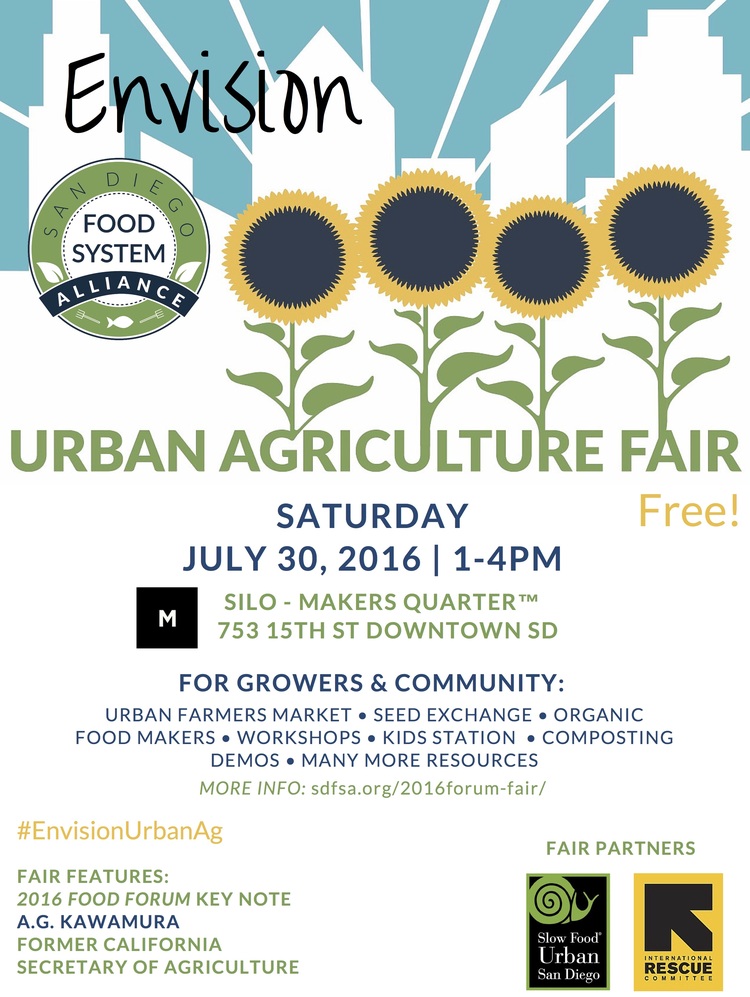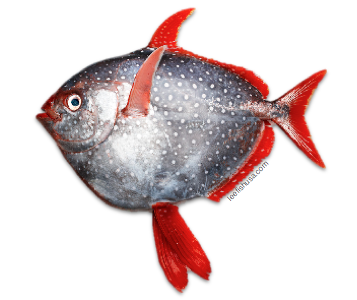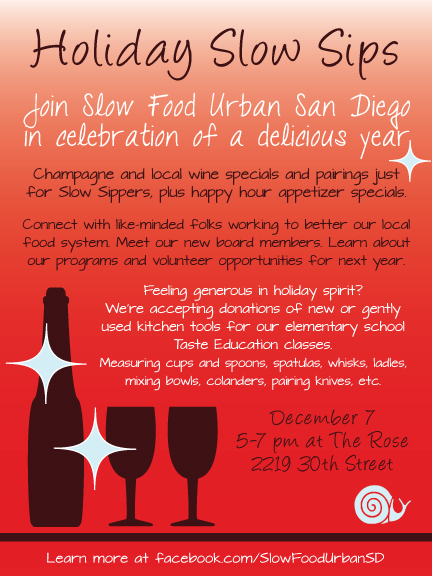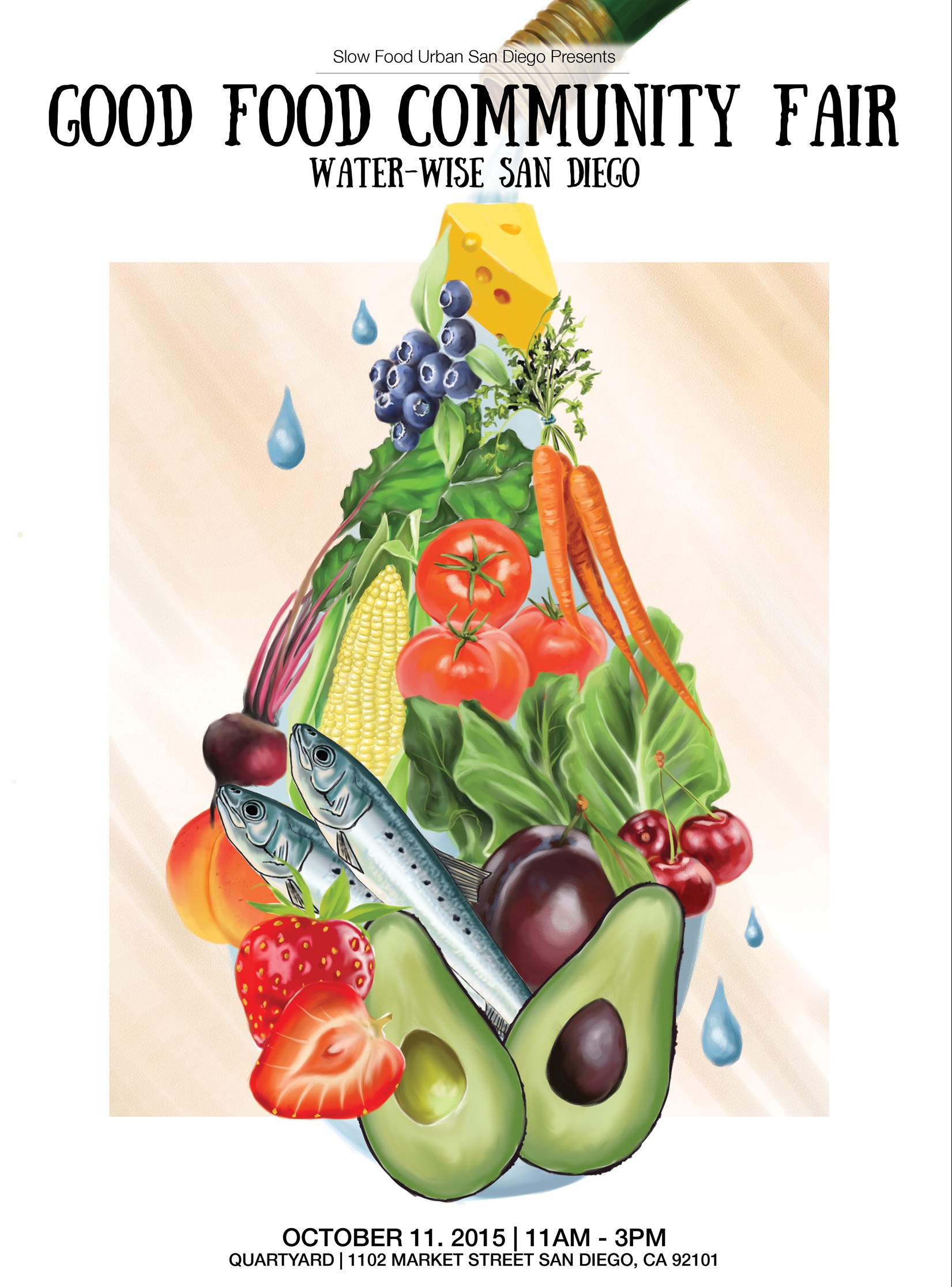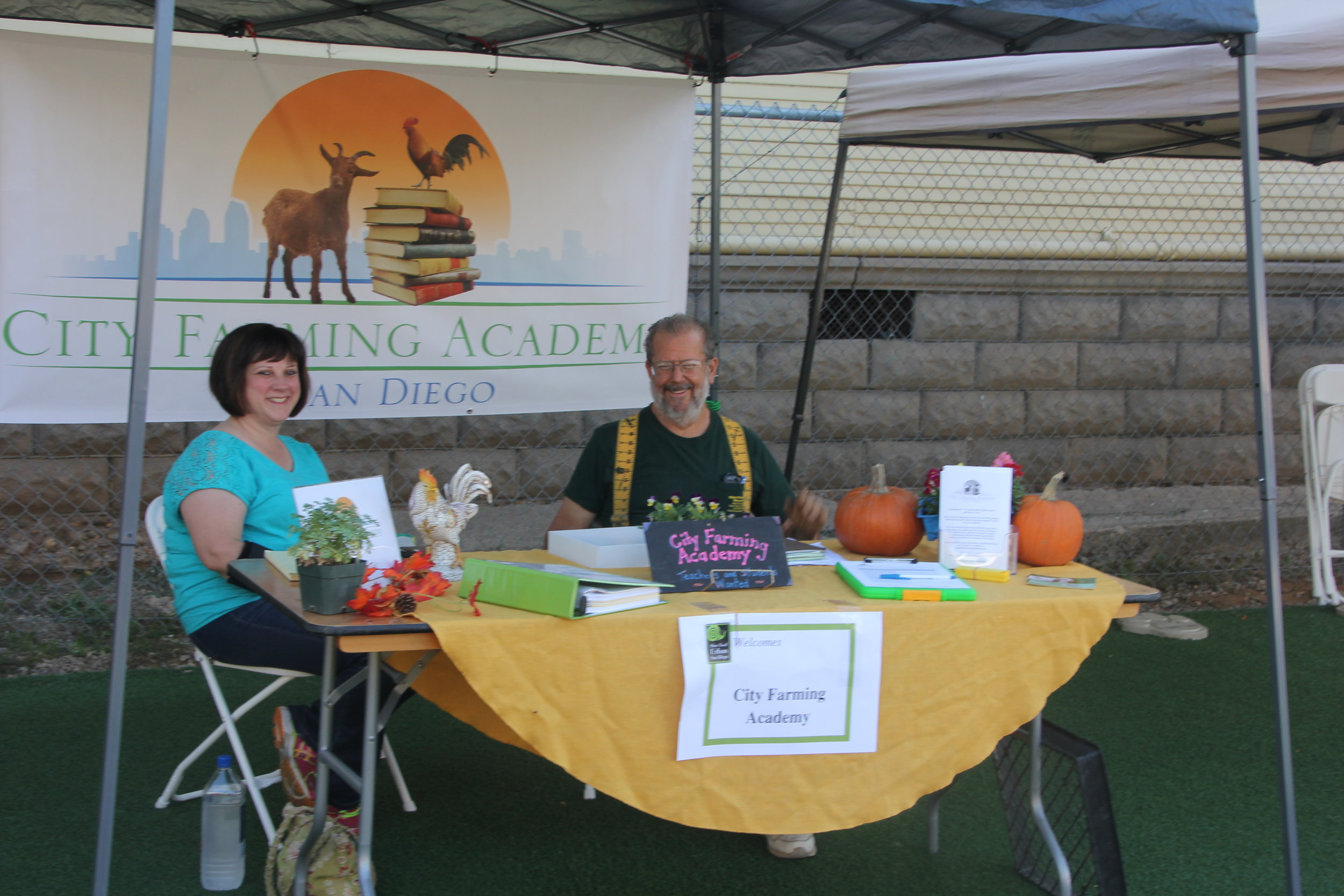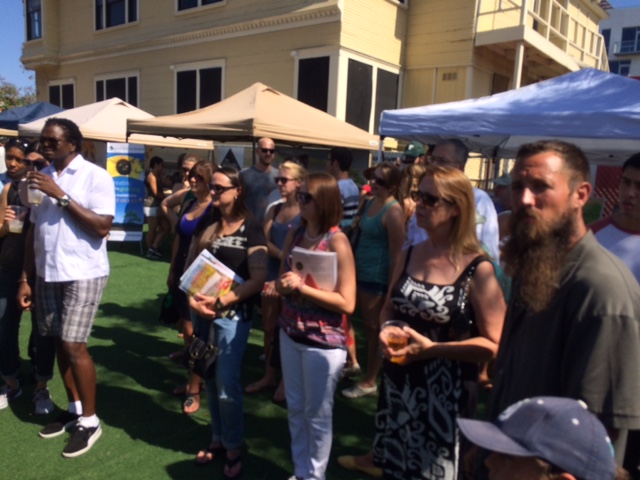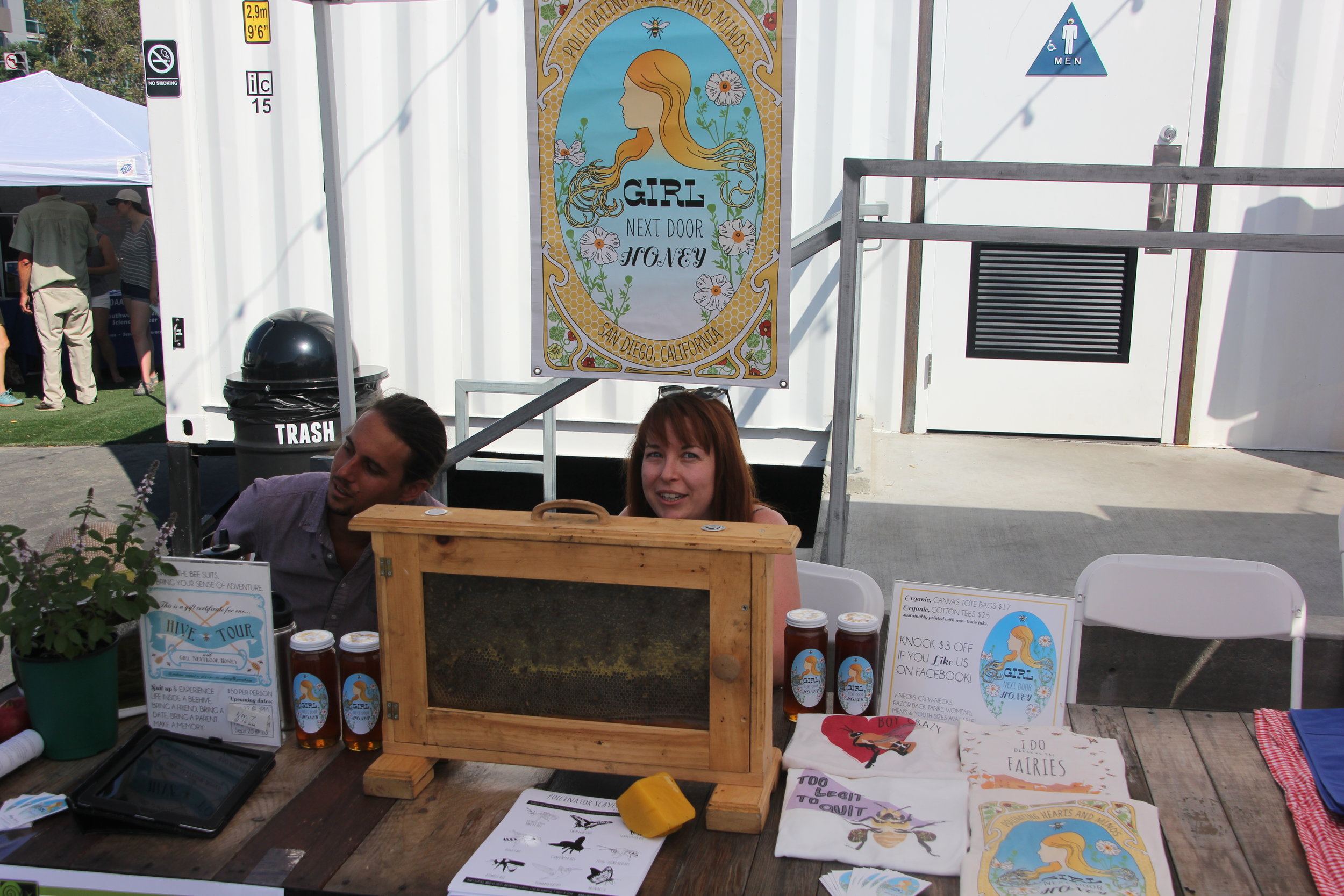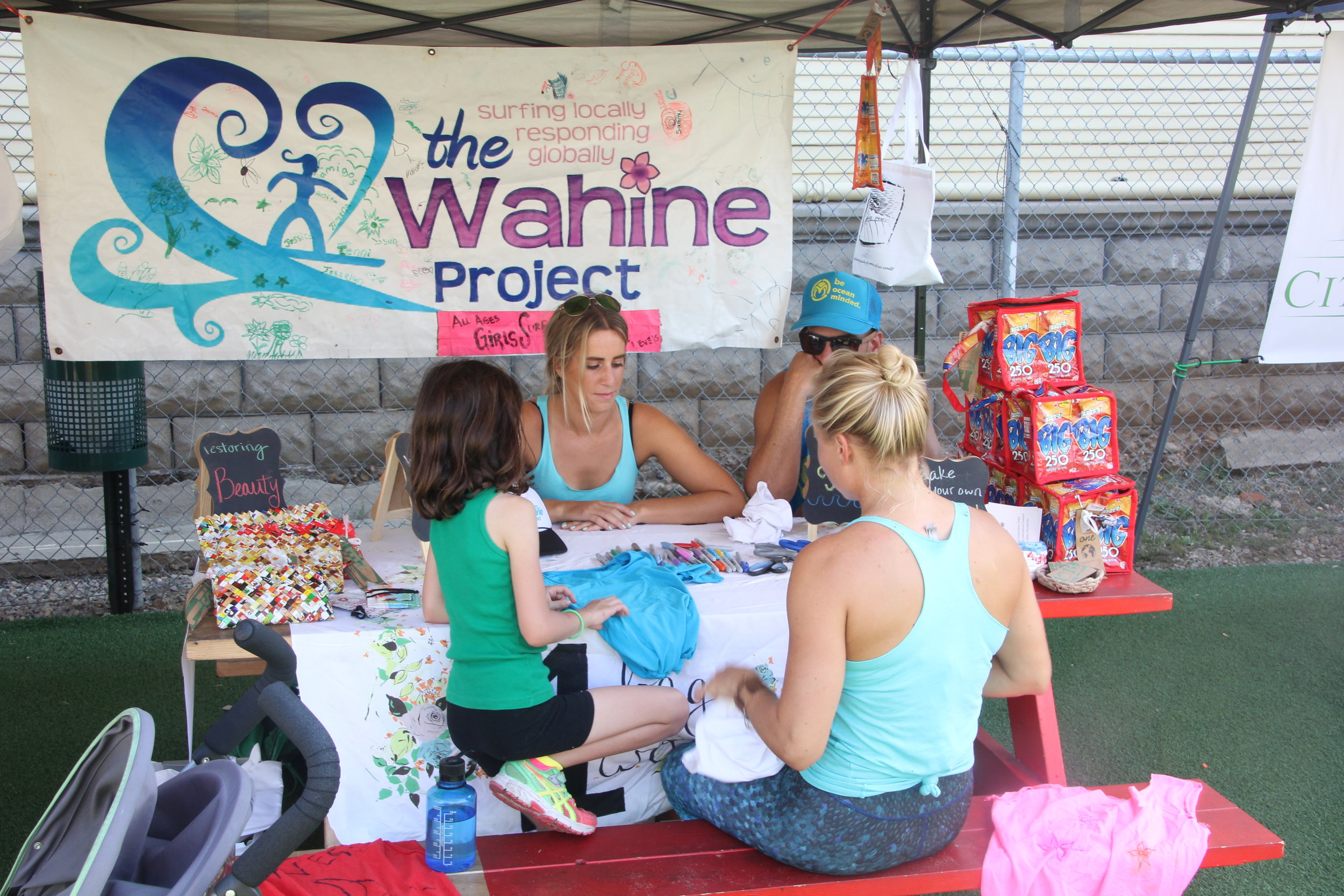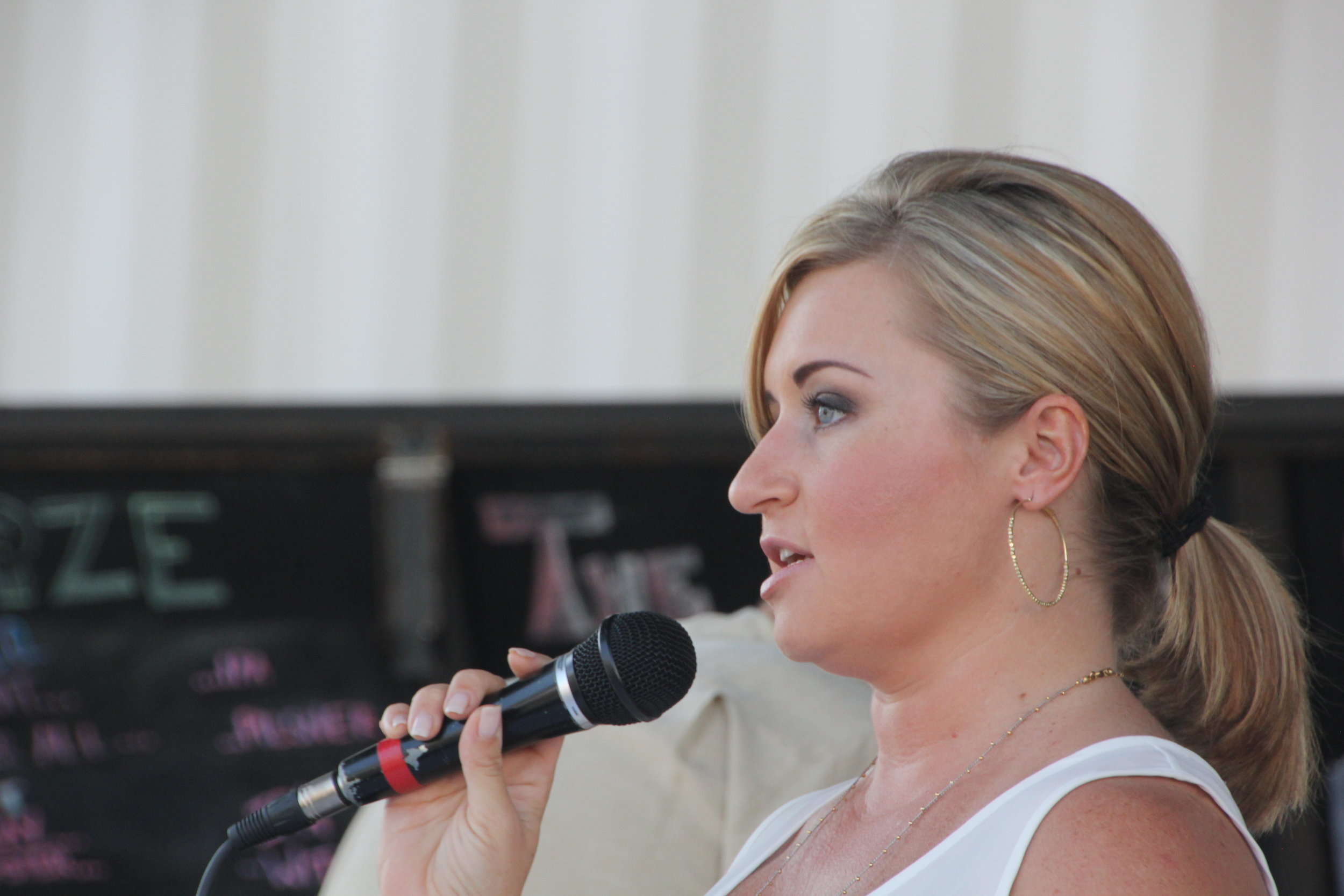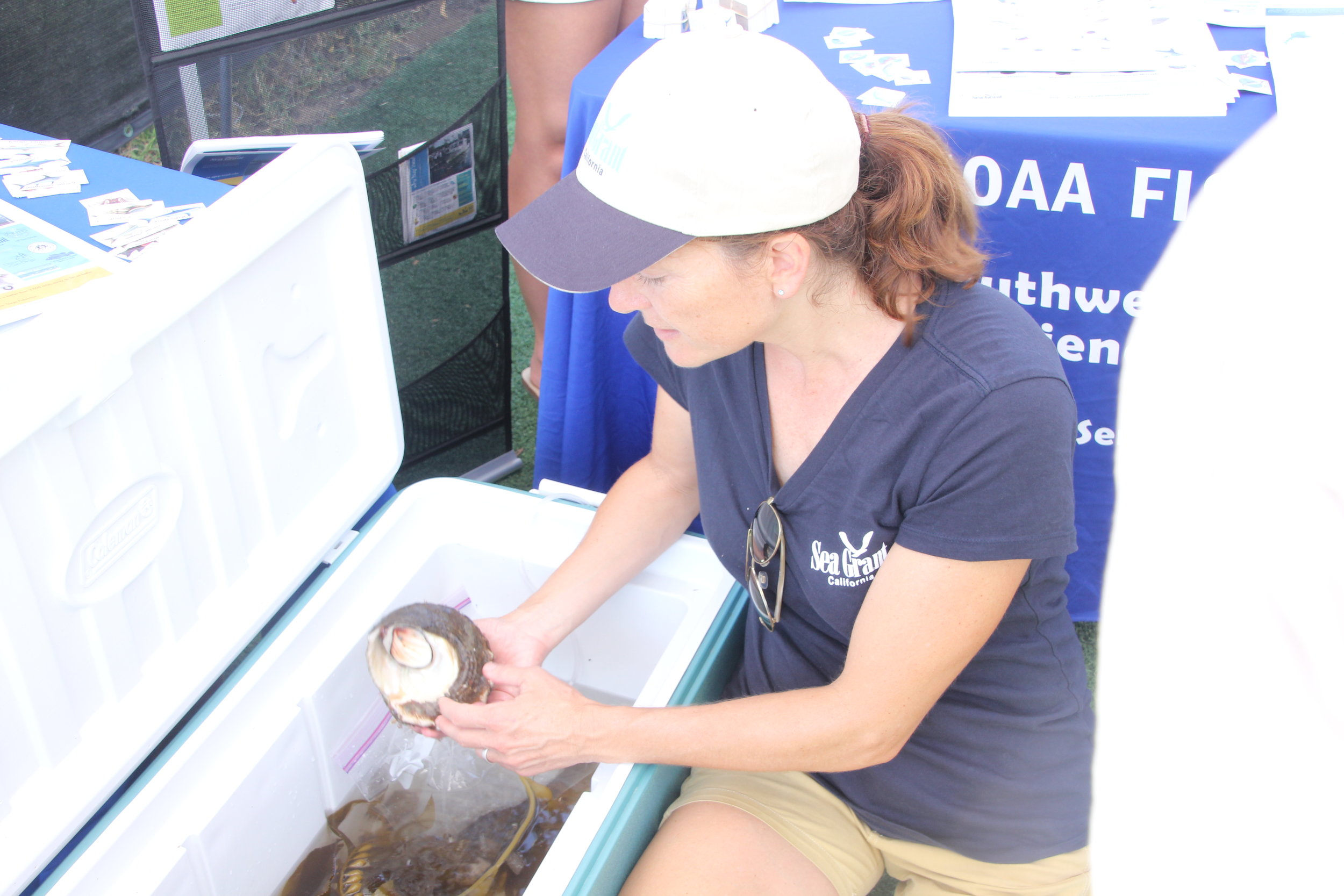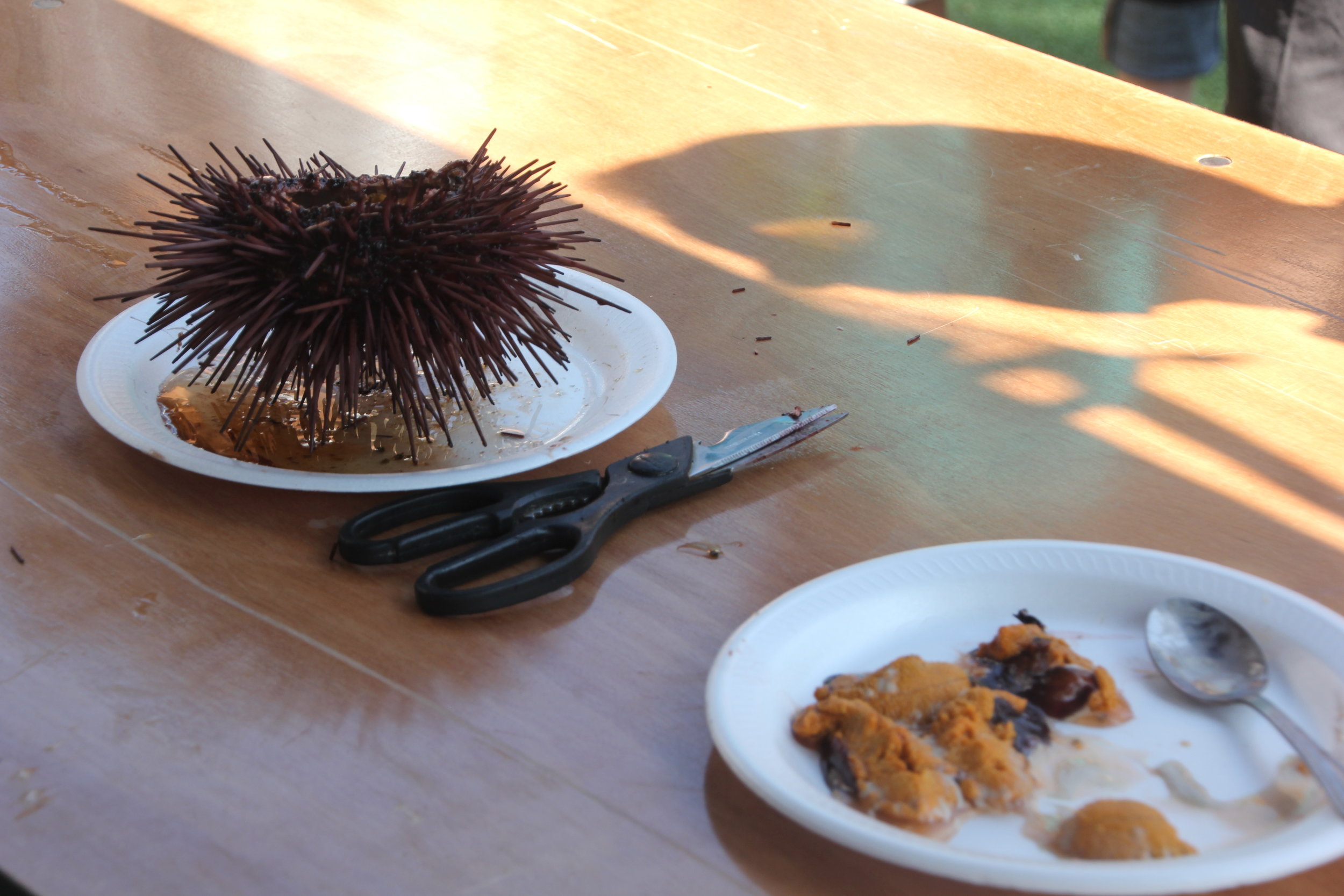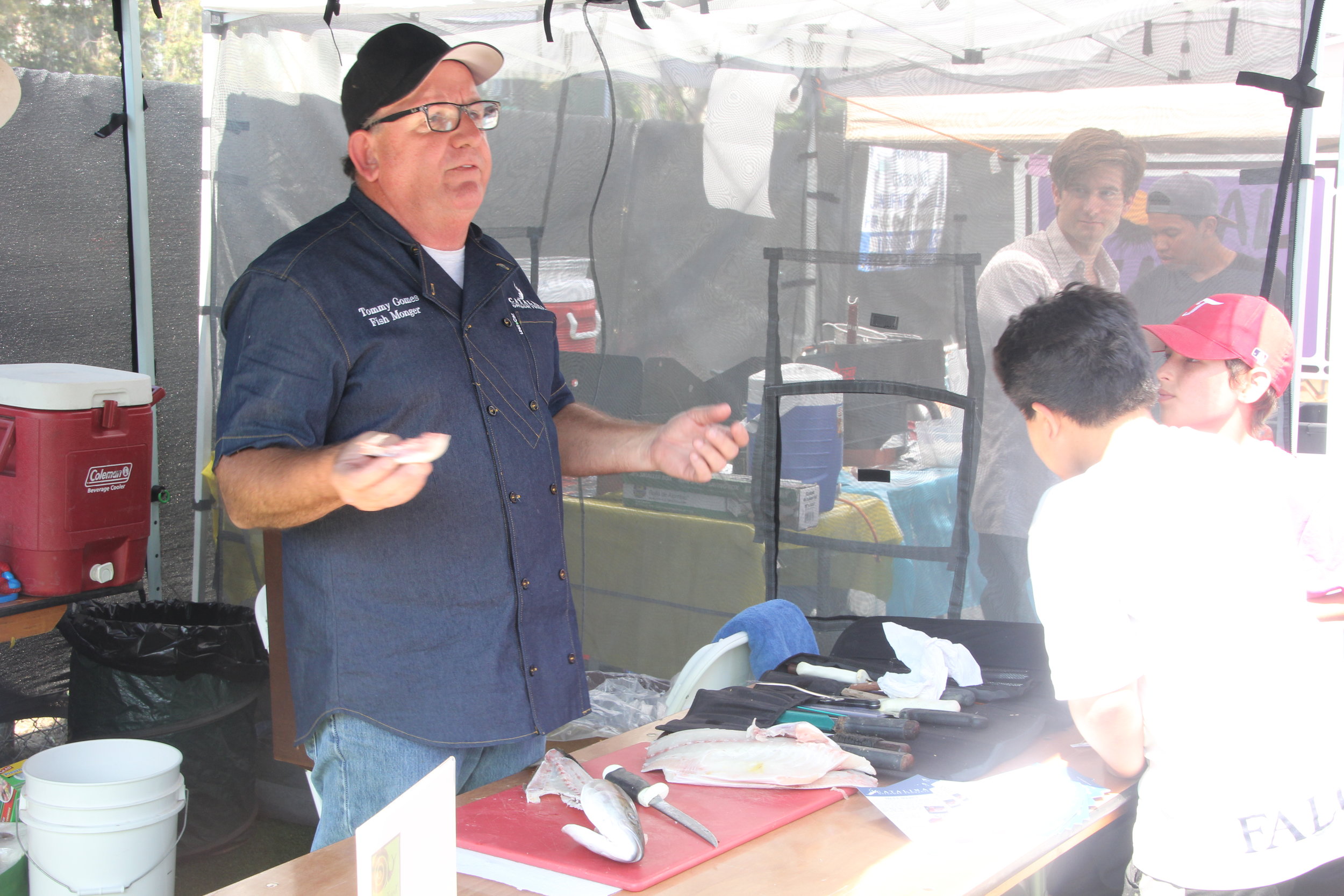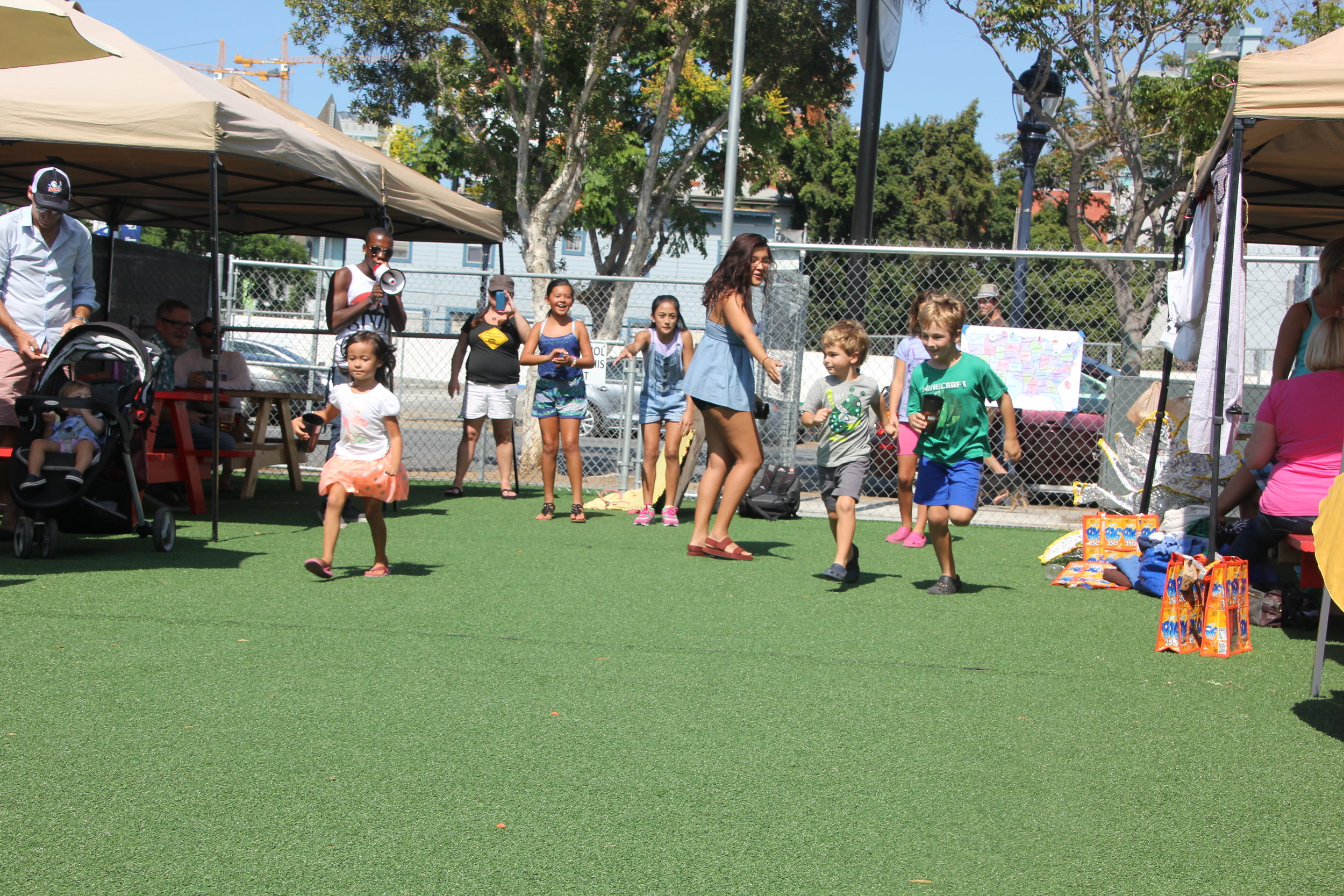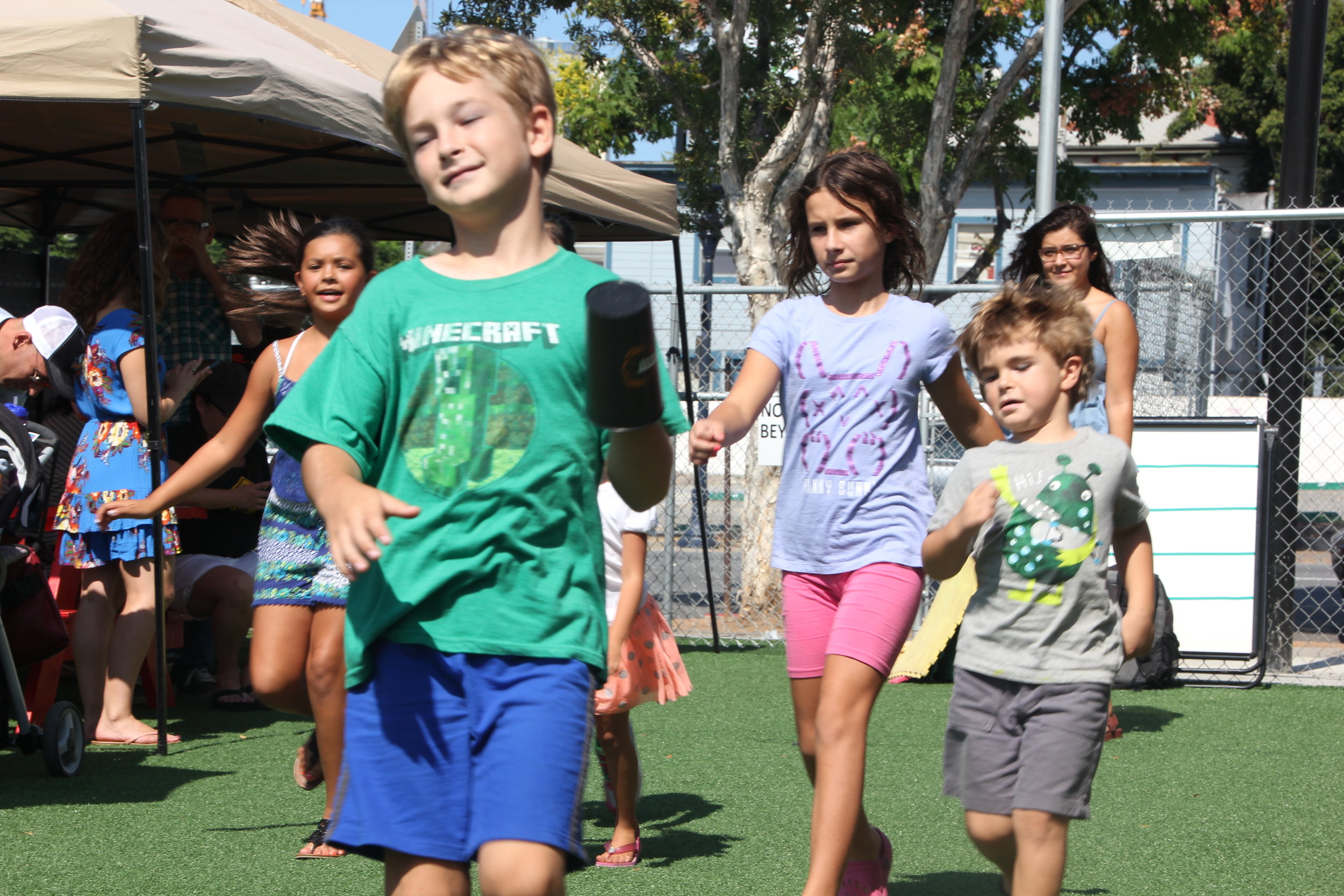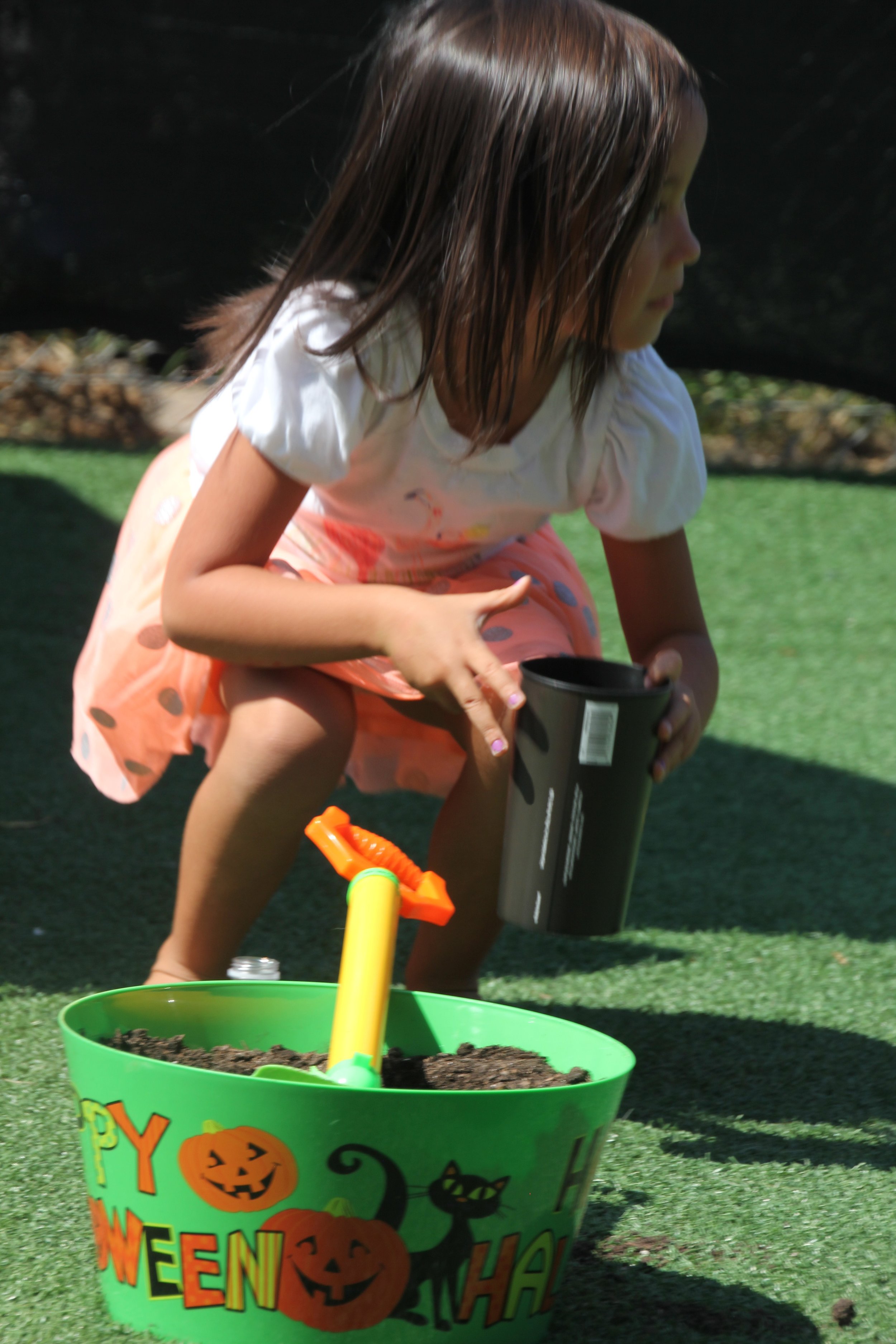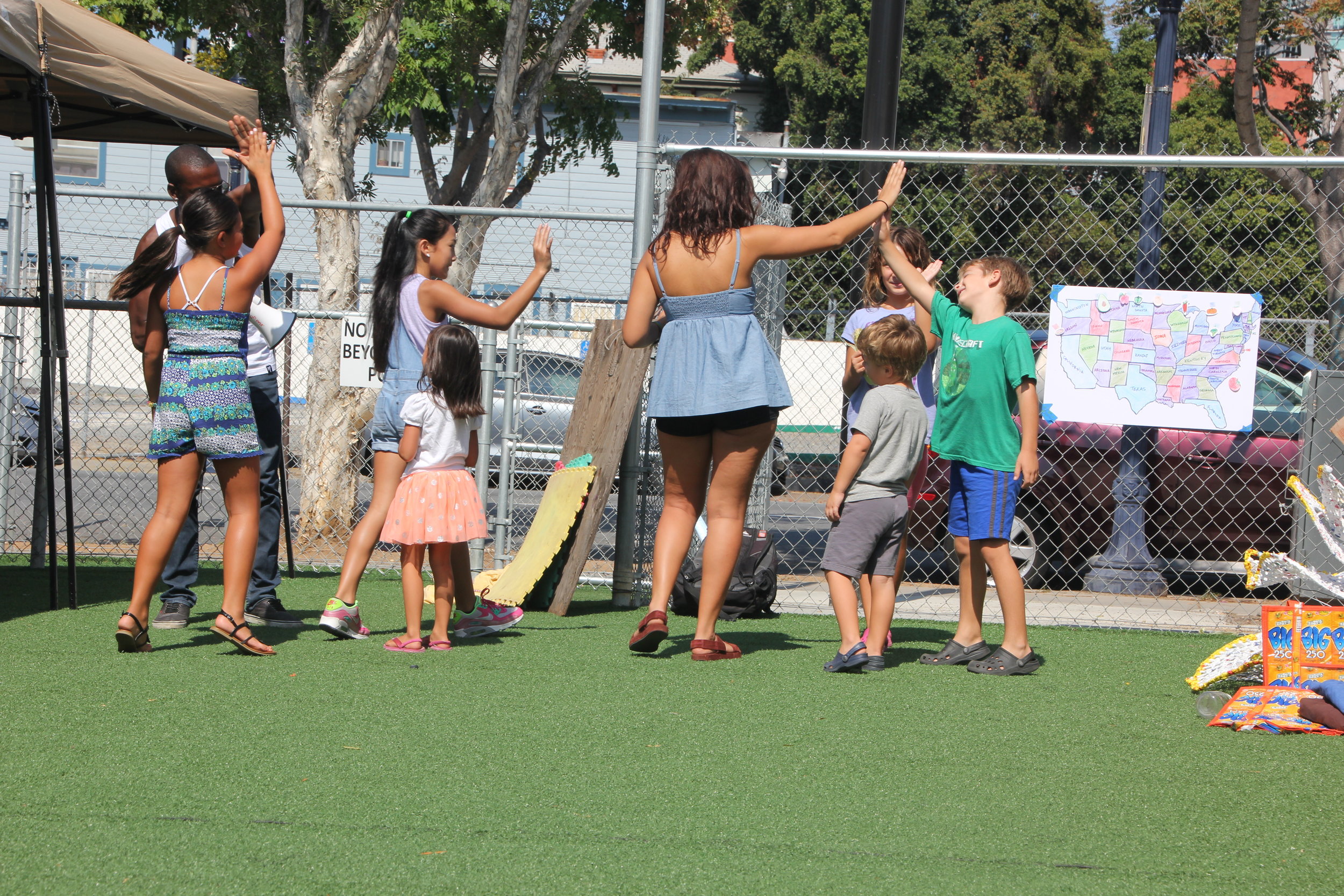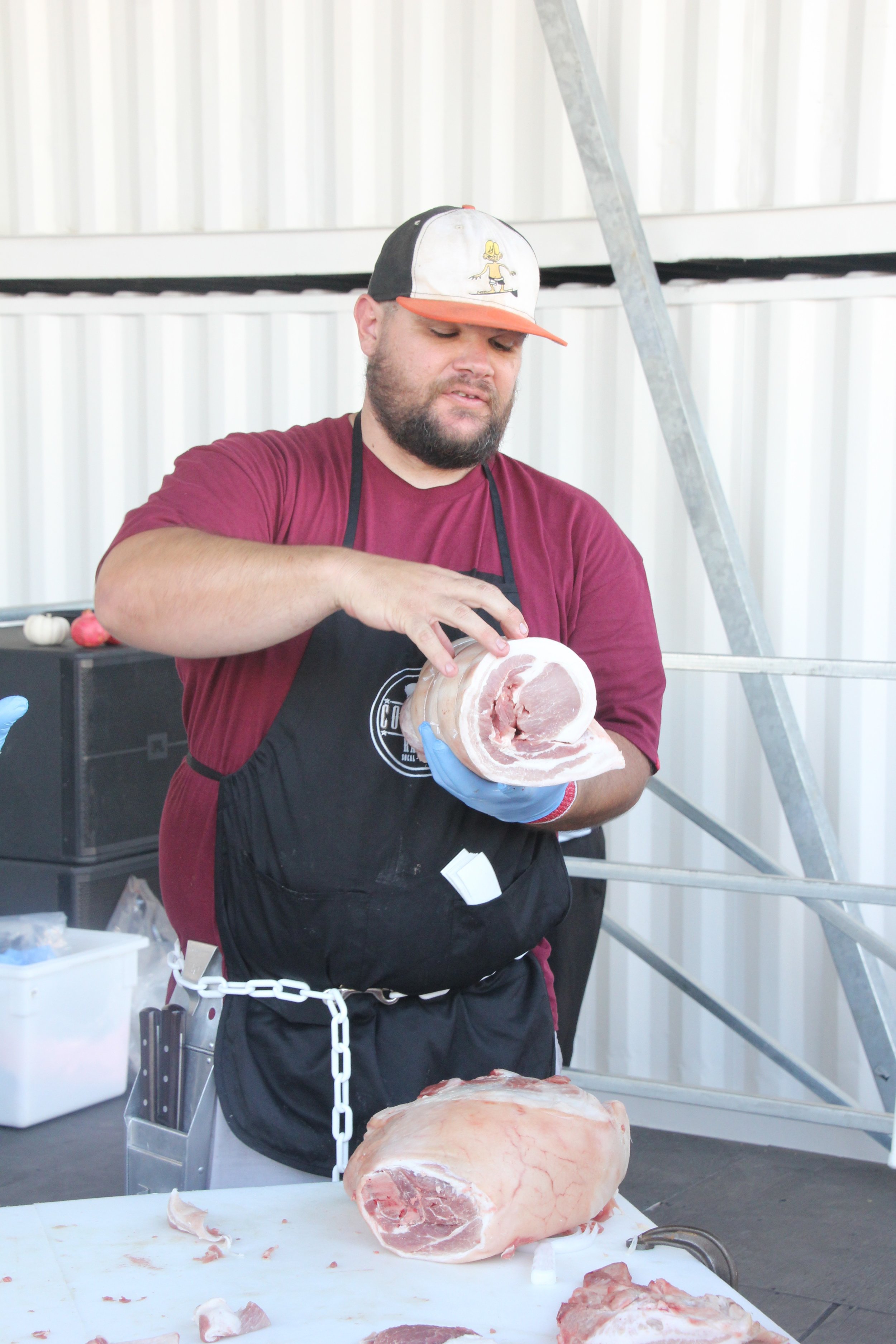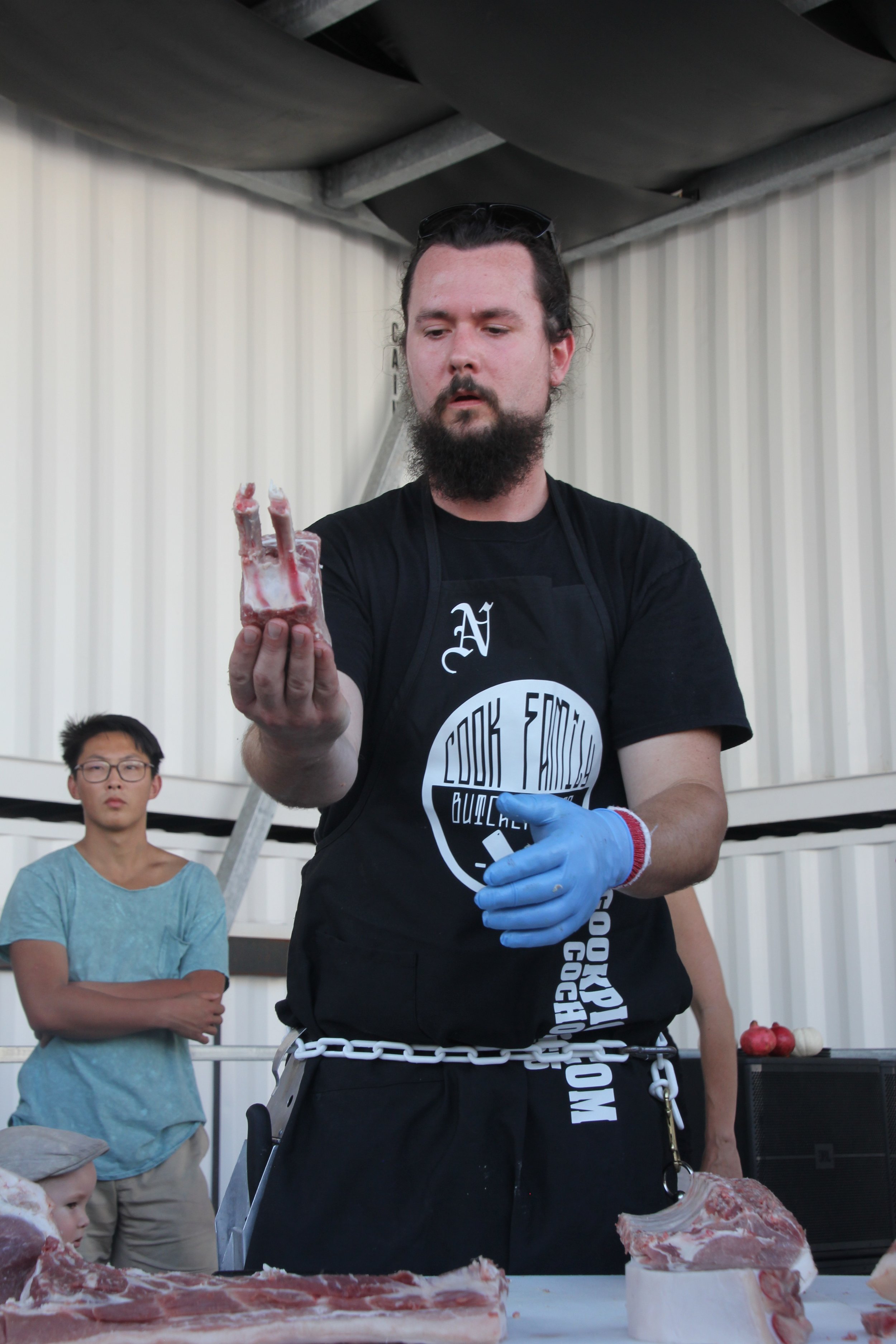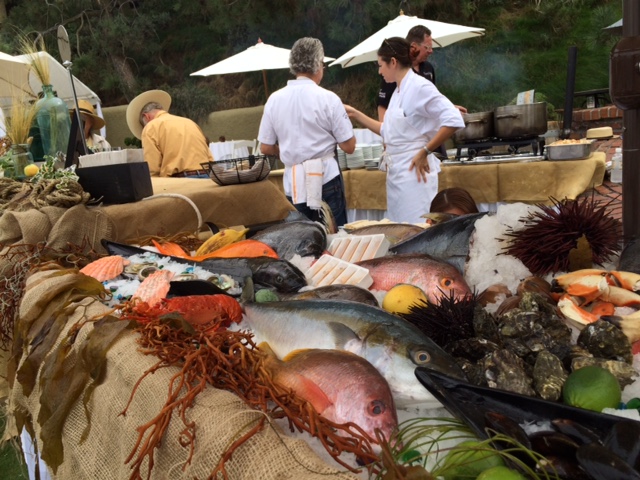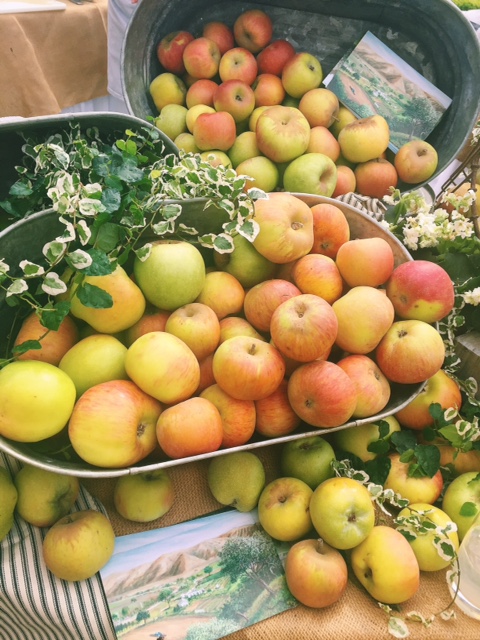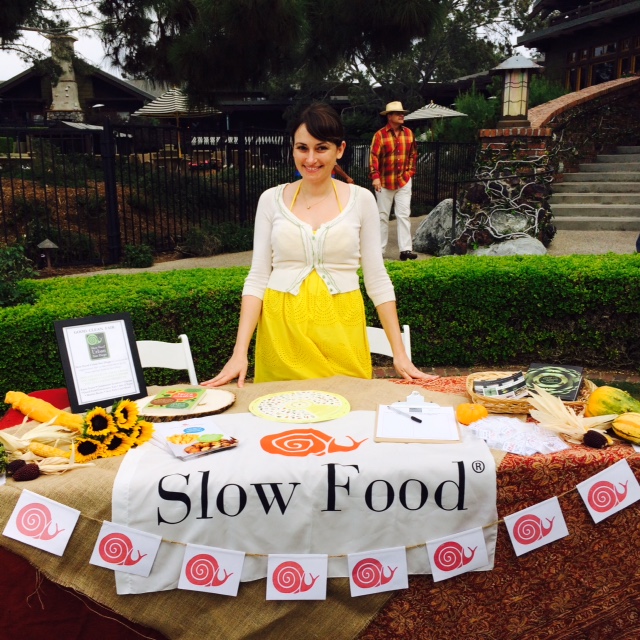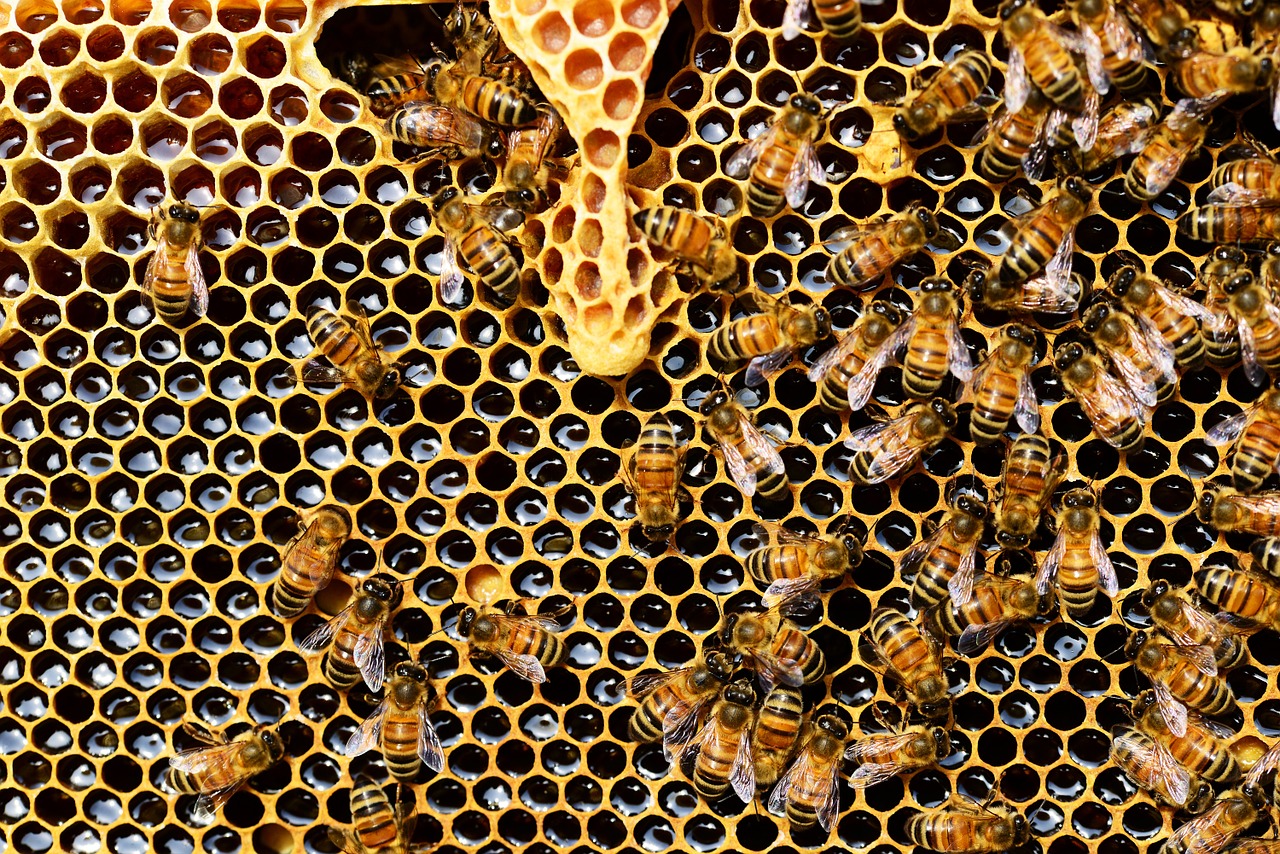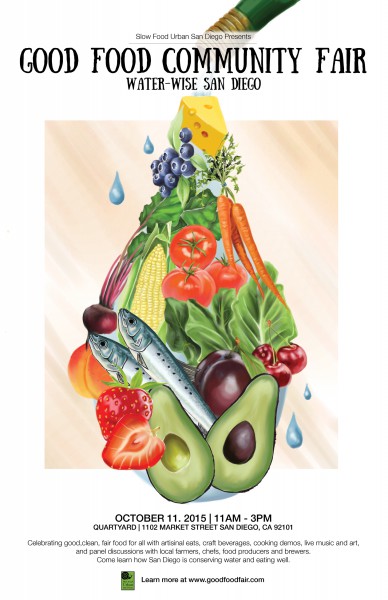Join us on November 8, 2018 for a private screening of ‘Dreaming of a Vetter World’ and a Q&A with filmmaker Bonnie Hawthorne.
Slow Food Urban San Diego's 2017 Holiday Party
Thank You for Joining Us at Good Food Community Fair!
The times challenge us. Slow Food Urban San Diego is grateful for our community - you uplift us in times like these and help to ground us in others. Thank you for your important contributions to our Good Food Community Fair: True Cost of Food and to our local food system. Thank you for sharing your wisdom, skills, knowledge, sense of hope, resiliency, successes, humor and delicious food and drinks.
This year's Fair celebrated how we are addressing the True Cost of Food in our region and acknowledged the work we have yet to do.
We discussed the true cost of food and farm labor, sustainable seafood, wasted food, soil health and land management, preserving cultural traditions and more. Thank you for sharing your stories and local treats, for teaching us about heirloom seeds and gyotaku, how to prepare "three-sisters," and how to connect to our farmers and fishermen and support healthy food systems. Slow Food looks forward to continuing the effort with you, our community. Thank you to all who contributed and volunteered, and all who attended, and to the WorldBeat Cultural Center for being our gracious host.
We're grateful to our generous sponsors who made it possible to charge only a "suggested donation," so that we can truly bring the Slow Food mission of good, clean and fair food to ALL. Creating opportunities to connect that are accessible is important to us.
Thank you to all who attended and partook of this community event. If you missed this year's good, clean and fair food fun, you can catch the next one in 2018. And of course, you can find us planting, eating, learning, teaching, connecting, cooking and expanding community with our partners in the meantime.
From all of us at Slow Food Urban San Diego, eat well, grow well, and be well.
2017 Good Food Community Fair October 1st @ the World Beat Center
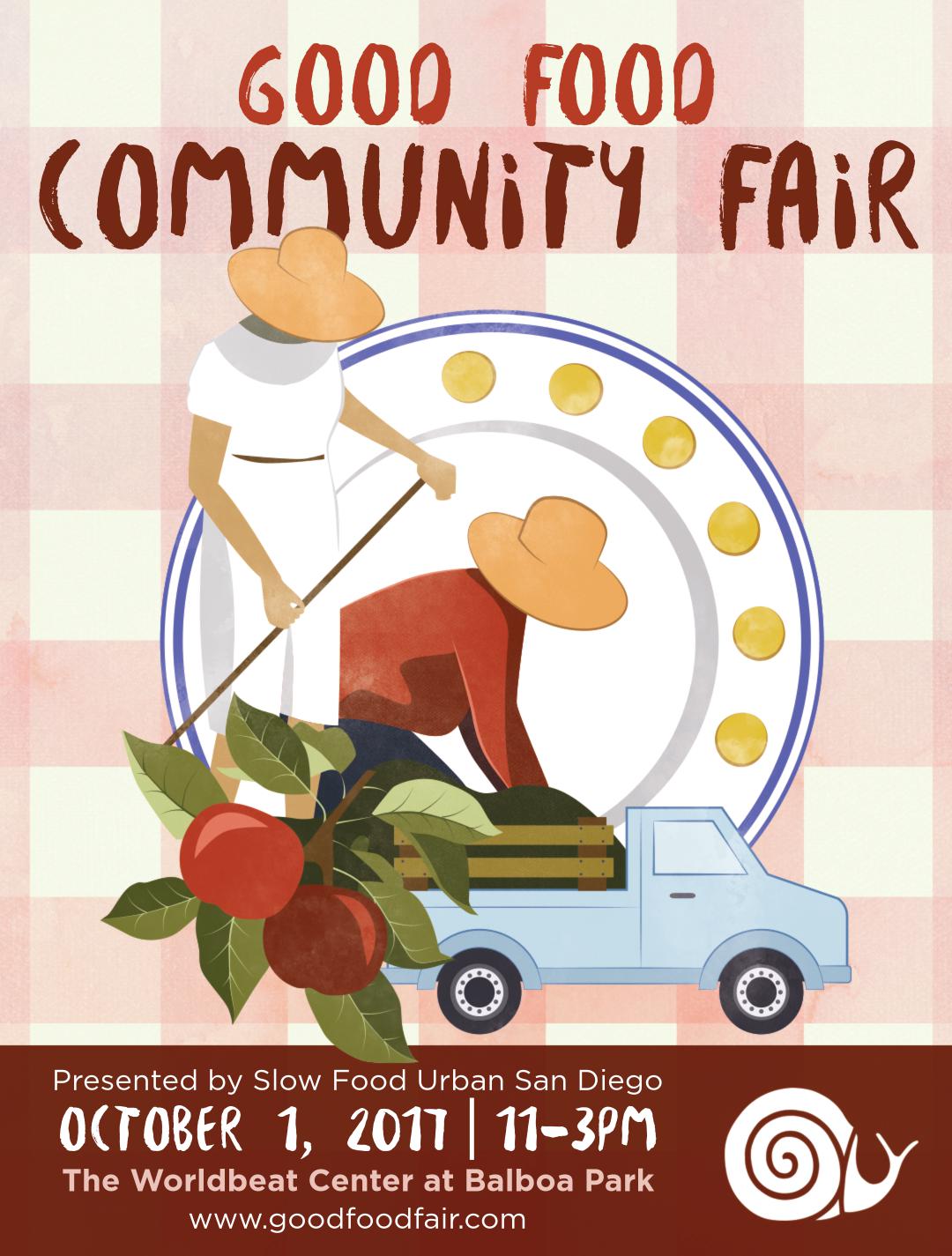
Slow Food Urban San Diego brings together the largest collection of food system advocates in San Diego County: The 4th annual Good Food Community Fair. Come to the Worldbeat Center on Sunday, October 1st from 11am - 3pm as we celebrate all things slow and expand the community table to everyone interested in exploring the Good, Clean, and Fair food movement in San Diego.
The fair is part festival, part conference, part food-stravaganza. Enjoy culinary demos and panel discussions while sampling delicious libations and tasty treats from local food purveyors, tour the first sustainable, edible garden in Balboa park, meet local organizations dedicated to food justice, and learn about the true cost and value of food from some of the most prominent thought leaders in the entire San Diego region.
Programming will highlight and celebrate our community's successes in fair food and ways we can work toward a more just and regenerative food system for all people, animals, and the land.
Meet Your Fishermen
Their days usually start with listening to the weather. And are filled with doing what they love: fishing. Not slave to traffic patterns so much as the winds and currents, they harvest the food we eat in ever changing conditions.
Meet our fishermen on Feb 25th at an evening of local seafood & local wine! Sea bass and box crab caught by San Diego's fishermen and crafted into delicacies by MIHO Gastrotruck Wine produced by J*Brix
Seafood Demonstrations by the pros!
San Diego’s fishermen* harvest a diverse array of species: from swordfish, the most cunning of catches, to sea urchins, the sessile ocean starbursts. From 60+ species of rockfish which most restaurants call snapper to opah, a warm-blooded newcomer on the San Diego seafood scene with three distinct cuts of meat ranging from the fatty belly to the beef-like abductor muscle. Plus albacore, sardine, snails, whelks, black cod, octopus, spot prawns and more. The list of our local abundance goes on.
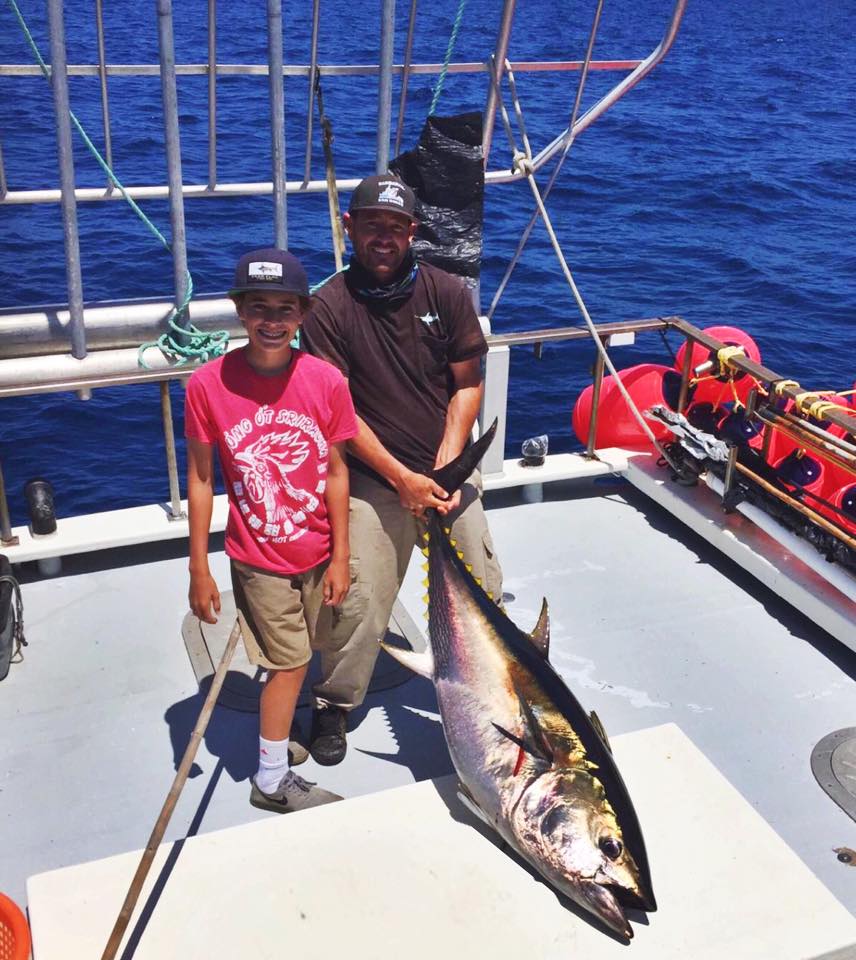
“San Diego is a unique location for the seafood industry in the world. We have a large diversity of year-round species. We have seasonal migrations of pelagic fish. And we have weather that makes seafood available year round.” – Kelly Fukushima, first generation San Diego fishermen.
On Saturday, February 25th, San Diegans have the opportunity to meet some of our local independent fishermen. The folks who chose a life of constant change – weather, regulations and fish availability – to provide our food. Slow Food celebrates these food producers. Box crab demonstrations all night and sea bass breakdown at 7pm.
Kelli and Dan Major Fishing Vessel: Plan B Fishes: Box crab and just about anything available from Point Conception to the Mexico border and out 200 miles – lobster, octopus, whelk, rockfish, bonito, yellowtail…
Kelly Fukushima Fishing Vessel: Three Boys Fishes: swordfish, squid, crab, lobster, seabass, groundfish
Antonio Estrada Fishing Vessel: Caroline Louise Fishes: sea bass, including the one we’ll be eating on Sat
U.S. fisheries are among the most stringently regulated in the world.
“When San Diegans eat seafood from California fishermen, they are making a great choice for sustainable, responsible seafood and they are supporting artisanal fishing families.” – Kelly Fukushima
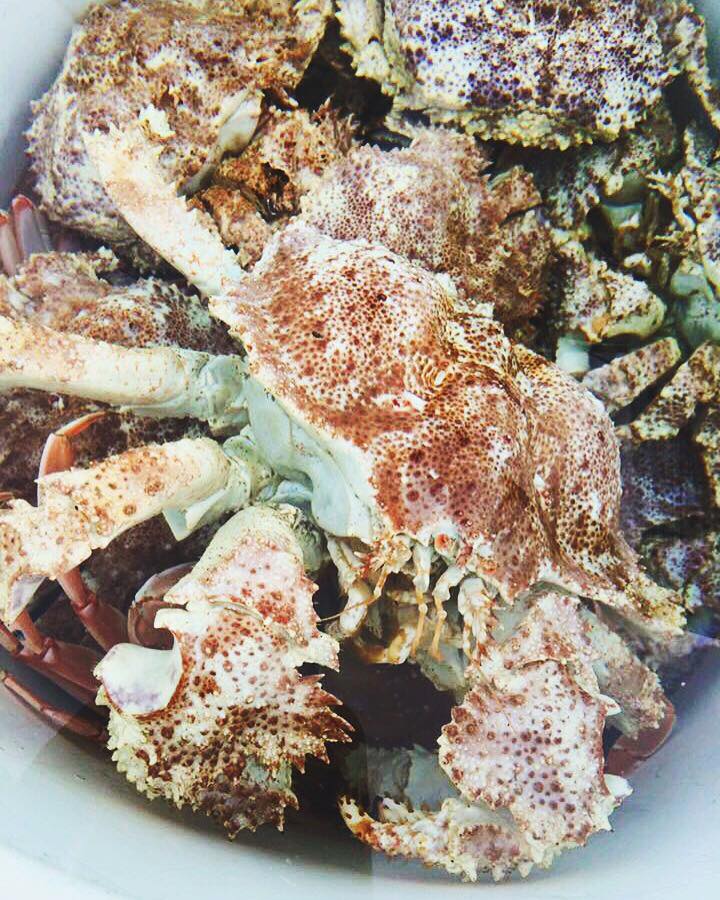
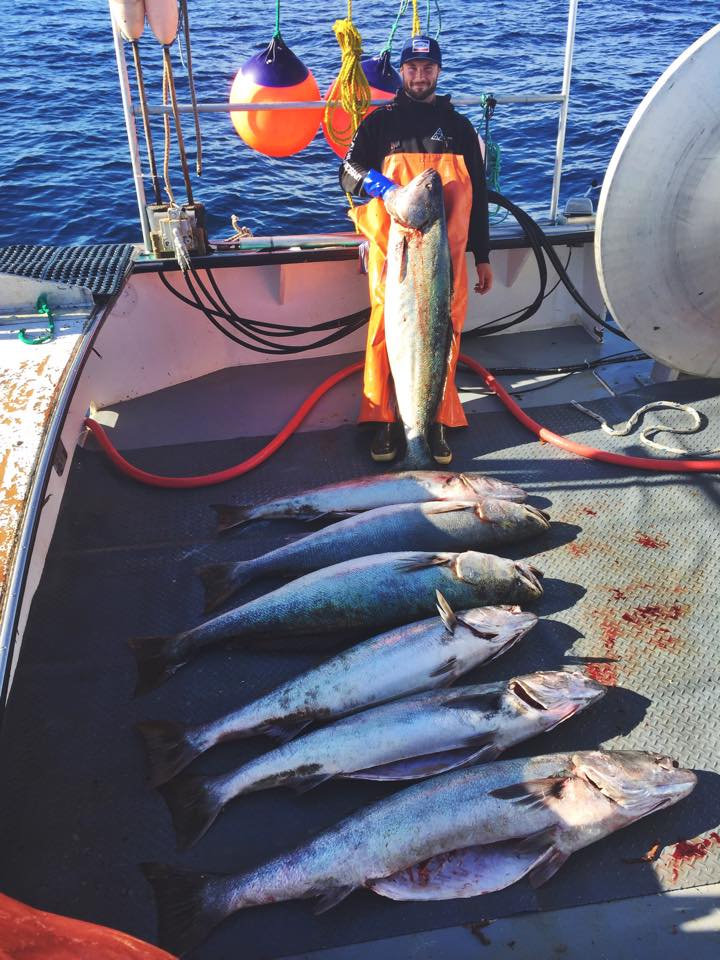
*Most people who fish commercially, whether man or woman, prefer the term fisherman over fisher, fisherwoman, etc.
And Evening with San Diego’s Independent Fishermen and Small-Production Winemakers
Slow Food Urban San Diego invites you to a Slow Fish & Slow Wine event featuring small-production winemakers and San Diego's independent fishermen. 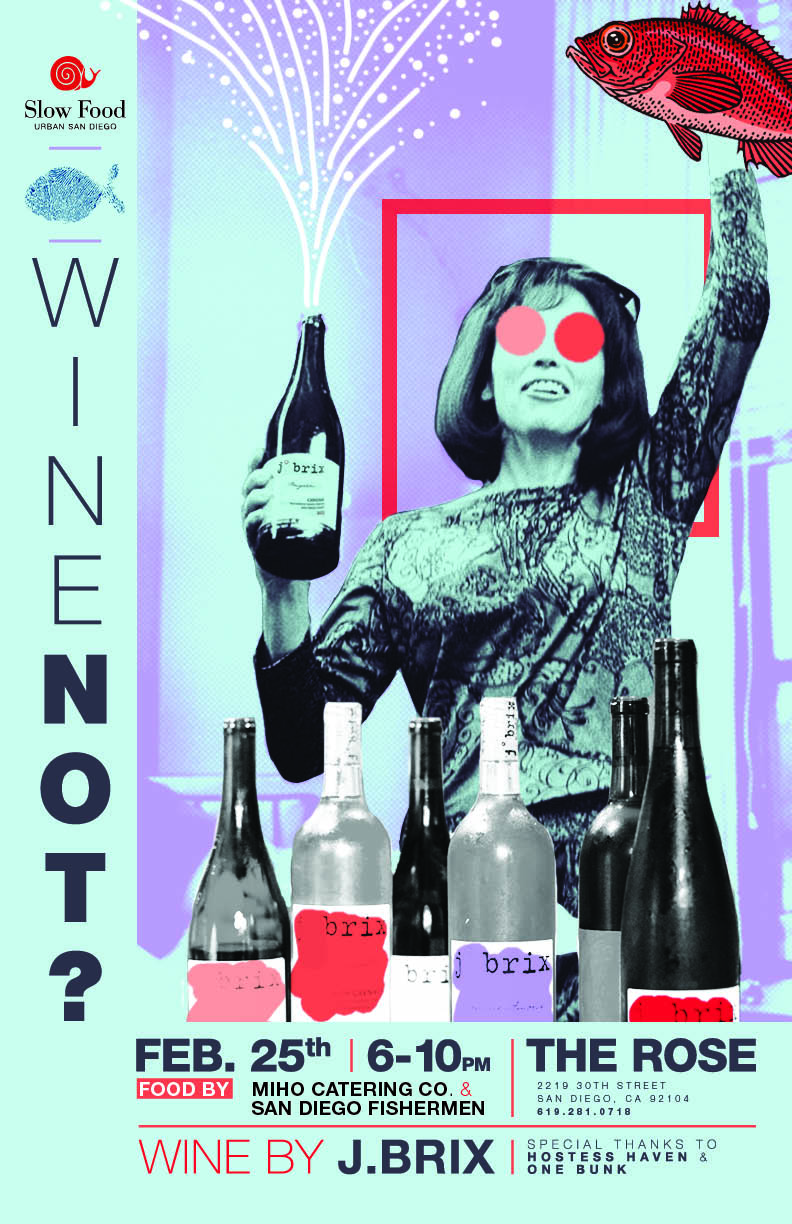 Hometown heroes MIHO Catering Co. will provide sea-to-street cuisine on-site with support from Hostess Haven, who’ll be handling the décor and look of the evening. The night will feature seafood demonstrations by the fishermen who caught the night’s sustainable fish as well as tunes, visuals, and antics provided by the Wine Not? team.
Hometown heroes MIHO Catering Co. will provide sea-to-street cuisine on-site with support from Hostess Haven, who’ll be handling the décor and look of the evening. The night will feature seafood demonstrations by the fishermen who caught the night’s sustainable fish as well as tunes, visuals, and antics provided by the Wine Not? team.
This February 25th, Wine Not?, the L.A.-based event and lifestyle unit of Bon Appétit Wine Editor Marissa A. Ross and event producer Evan Enderle, comes to San Diego in support of Slow Food Urban San Diego and J. Brix Wines.
The event takes place from 6 to 9pm on the 25th. Tickets are $25 and include admission, wine tasting and small bites. Advance purchase is strongly recommended as space is limited. Tickets are available via WineNOT. Proceeds will benefit SFUSD’s programs to promote good, clean & fair seafood in San Diego. The Rose is located at 2219 S. 30th Street and can be reached via telephone at 619.281.0718.
Snooze: Celebrate Bacon Day and Support Slow Food
FullSizeRender
Did you know Saturday September 3rd is International Bacon Day? Slow Food USA is celebrating the holiday this year with Snooze an A.M. Eatery. Snooze is throwing a Bacon Day event and donating 10% of their sales Saturday from all of their locations to Slow Food!
Snooze is a Denver based breakfast restaurant with locations in Colorado, Arizona and California with two locations in San Diego County - one in Hillcrest and one in Del Mar. Snooze operates under values very similar to Slow Food's Good, Clean and Fair Food For All that they express through their menu, their sourcing practices and their involvement in their communities.
The Snooze menu includes breakfast classics with a twist (e.g., Breakfast Pot Pie, Caprese Benedict, Sweet Potato Pancakes) and they go out of their way to find and create foods that are the intersection of tasty and responsible. We spoke with their sourcing lead, Spencer Lomax about their approach to souring their food to be Good Clean and Fair. He says that the bottom line is that they want to serve their guests responsibly sourced and tasty food fulfilling their responsibility to the land, to their customers, to their communities and to Snooze. They live up to that responsibility by providing real, tasty food that was produced sustainably and locally when it makes sense and by engaging with their local communities. In San Diego they source from several local companies including Bread & Cie and Jackie's Jams. They support several local non-profits ARTS (A Reason to Survive), Bike To Work, Mama’s Kitchen, Dining out for Life, Helen Woodward Animal Shelter, Del Mar Education School Foundation and the San Dieguito River Valley Conservancy.
In honor of Bacon Day Lomax talked specifically about his search for bacon that was both delicious and lived up to the Snooze standards. Snooze sources their pork from Tender Belly. Tender Belly is devoted to the well being of the animal through both the environment in which they live and the all natural, vegetarian diets they are fed. As a part of their Bacon Day celebration you can not only enjoy a full special menu full of Tender Belly bacon items you can register to win bacon for a year from Tender Belly.
IMG_5265
Come by one of the Snooze San Diego locations on Saturday to enjoy the awesome bacon menu, visit with our Slow Food Urban San Diego team, and support Slow Food!
Envision Urban Agriculture in Urban San Diego
Hillary of Girl Next Door Honey giving the buzz about local bees
Last month Slow Food Urban San Diego held an Envision Urban Agriculture Fair in partnership with the San Diego Food System Alliance and International Rescue Committee at Silo in Makers Quarters, Downtown. Together with our good, clean & fair collaborators, we provided the community resources to grow food in our city at this free event. The fair featured an urban farmers market, live music, local organic food and beer, seed exchange, composting workshops, resources for growers, cooking demos, and the Lexicon of Sustainability exhibit.
IMG_5040
IMG_2262
A BIG thanks to all our collaborators including Girl NextDoor Honey for the Helping Honeybees Workshop, The Heart & Trotter for the butcher demo, Kitchens for Good and Vivacious Dish for a raw desserts demo, and Specialty Produce, Karl Strauss, Golden Coast Mead and Kashi for their generous food and drink donations.
Join SFUSD on August 13 at Suzie's Farm for a Sunset Concert
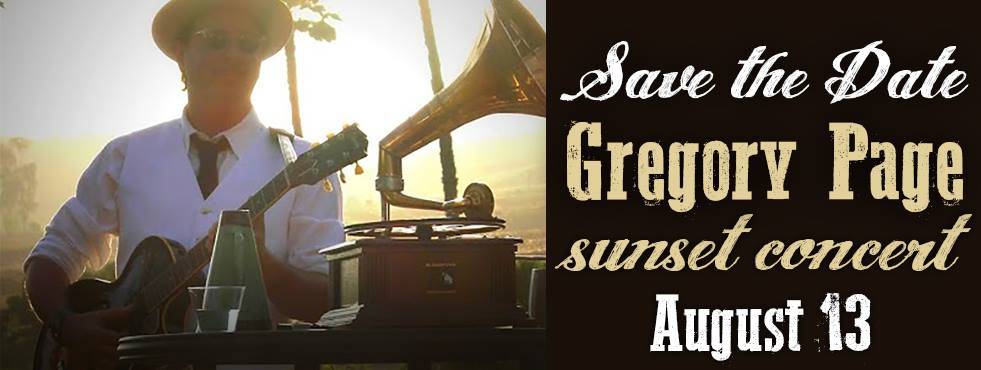 Ready for some summertime fun? Spend a carefree evening at Suzie’s Farm enjoying warm summer breezes, a golden sunset and listening to the dreamy music of Mr. Gregory Page.
Ready for some summertime fun? Spend a carefree evening at Suzie’s Farm enjoying warm summer breezes, a golden sunset and listening to the dreamy music of Mr. Gregory Page.
Suzies Farm is offering a special field tour starting at 3pm as an add-on. This will also ensure you are one of the first in line when doors open so you'll grab a great spot!
Golden Coast Mead will be on tap. This event is partnering with Mindful Fitness. A portion of proceeds will benefit Slow Food URBAN San Diego, so come on out and show your support.
$27 open seating (bring your own chair/blanket) registration in advance $40 reserved seating for picnic tables limited availability
Get tickets here. PLEASE NOTE: No sales at door.
Facebook event page
Join Slow Food and the Food System Alliance this Saturday for an Urban Agriculture Fair!
Seafood Saturdays!

Chef Cindy Quinonez will cook Sweet and Sour Rockfish with Bok Choy and Opah Meatballs (recipe below) this Saturday.
Opah Lampris guttatus (aka moonfish). Opah is a bycatch fish in the tuna and swordfish fisheries off California and around the Pacific Islands. They are available year round, but landings seem to peak from April through August. In 2015, San Diego scientists discovered that opah are warm-blooded fish.
For more information on opah go here.
Lettuce-Wrapped Spicy Opah Meatballs
Spicy meatballs made from ground opah, served on lettuce or other greens with a lime dipping sauce. Variation of recipe of same name from Pacific Flavors by Hugh Carpenter.
Spicy Opah Meatballs: 1 pound ground opah 2 green onions, minced 2 tablespoons minced fresh coriander 2 tablespoons light soy sauce 1 egg 1 teaspoon grated orange rind 3/4 teaspoon grated nutmeg 1/2 teaspoon Chinese chili oil 1/2 teaspoon black pepper 4 cloves garlic, finely minced 1 tablespoons fresh ginger, minced Cornstarch for dusting
Spicy Lime Dipping Sauce:
2 tablespoons Thai fish sauce 2 tablespoons lime juice 2 teaspoons sugar 1/2 teaspoon Chinese chili oil 1 clove garlic, finely minced 1 head Bibb lettuce or other greens* 1 bunch fresh cilantro 20 mint leaves 1/2 cup peanut oil * Baby bok choy leaves, kale, chard, spinach, etc.
Preparation: In a bowl, combine ground opah, green onions, coriander, soy sauce, egg, orange peel, nutmeg, chili sauce, pepper, garlic, and ginger. Mix thoroughly, then rub a little oil on your hands and form 20 meatballs about 1 inch in diameter. Arrange on a lightly oiled plate and refrigerate until ready to cook.
Pull leaves from Bibb lettuce or other greens and cut into 20 pieces about 3 inches square. On each lettuce square, place a sprig of cilantro and 1 mint leaf. Arrange lettuce leaves on a serving platter and refrigerate until ready to serve.
Cooking: To broil meatballs, preheat oven to 550 degrees. Place the meatballs on a small baking sheet. Turn oven to broil, place the baking sheet about 4 inches from heat, and broil meatballs until no longer pink in center, about 3 to 4 minutes. To pan-fry meatballs lightly dust with cornstarch. Place a 12-inch skillet over medium-high heat. When frying pan is hot, add oil. When oil just begins to give off a wisp of smoke, add meatballs and pan-fry them, turning them over in the oil until golden brown and no longer pink in the center, about 4 minutes.
Place meatballs next to lettuce cups on the serving platter. Serve at once, accompanied by the dipping sauce. Each person wraps a lettuce cup around a meatball and dips one end of the package into the sauce.
In a small bowl combine dipping sauce ingredients. Add 2 1/2 tablespoons water and refrigerate. Serves 6 to 8 as an appetizer; 2 as an entree.
Slow Fish 2016 - send a Valentine to a Fisherman
https://youtu.be/jhaCp2dD1s0 Show your love and appreciation for local fishermen by sending them to Slow Fish 2016 in New Orleans this March!
Slow Food Urban San Diego is sending two fishermen. Support the campaign to help send more from around the world!
Slow Fish 2016 will bring together fishermen, chefs and other fishing community stakeholders from around the world to highlight successes and challenges in bringing good clean and fair seafood to all: from changing ecosystems to variable fish stock health; privatization of the public resource to issues surrounding fair price and working waterfronts; and how we can improve access to fresh local seafood.
Best. Job. Ever. Making Slow Wine in a Fast World.
by Sarah Shoffler, SFUSD Board Member
I used to think that “rockstar” had to be the best job in the world. According to Cecilia Naldoni, winemaker at the Grifalco Winery in Basilicata, Italy, I was wrong.
“We do the best job in the world.”

One of four winemakers from Italy touring southern California this month as part of Slow Wine 2016, Naldoni and her colleagues love what they do, despite the difficulties.
Join us for Slow Wine with the Matriarchs on Friday, January 29th.
Slow Food believes that wine, just as with food, must be good, clean, and fair – not just good. Slow Wine supports small-scale Italian winemakers who use traditional techniques, respect the environment and terroir, and safeguard the diversity of Italy’s grapes.
“Slow Wine is how we approach life. It is our philosophy,” says Naldoni. But this lifestyle, this philosophy is not easy to affect. “The difficulty is that our world is going the opposite way, and we have to resist and fight this a lot.”
Sorelle Bronca, whose winemaker Antonella Bronca is on tour, grows their vines on high steep hills in Veneto, where standing can be difficult, let alone farming. Moreover, organic wine, which all four visiting winemakers produce, in general tends to produce lower yields than conventionally-produced wines. Basilicata, where the Grifalco winery is located, is the most mountainous region in Italy, which can’t make farming grapes easy.

While producing the high quality “Slow Wines” that these women make takes sacrifice and work in difficult land, they contend that making wine this way is worth it. The rewards are substantial. “Slow wine rewards not only the wine but also the relationship of the grower with the territory,” claims Elisa Piazza, enologist at Sorelle Bronca in Veneto, Italy.
Angela Fronti of Istine in Tuscany says that the most rewarding part is being able to produce what she loves in the way she loves. “Maybe in the beginning it was difficult to change the mentality of my parents. They are from a generation who produced conventionally. But actually, they are happy now, too,” says Fronti.
“We are a woman company that produces high quality wines and, like people do with women, we pamper our vineyards and land,” says Piazza whose family has been producing wine for three generations. “Wine is the pleasure of life,” she contends.
Naldoni describes the pleasure she has in producing Slow Wine and how the wines themselves benefit. “We are always under the sky, looking up and thinking about our vineyard. We can be responsible, sensitive and manage our grapes as we would a little child, leaving his best peculiarities alive, and just letting him be what he can be, at his best.”
Saluti to letting wine be its best self.

Join us at Slow Wine with the Matriarchs to meet these Italian vintners on Friday, January 29th at The Rose in South Park. 6:30-8:30 pm.
Angela Fronti of Istine from Tuscany Antonella Bronca of Sorelle Bronca from Veneto Cecillia Naldoni Piccin of Grifalco from Basilicata Matilda Poggi of Le Fraghe from Veneto
Taste 8+ wines, enjoy a complimentary aperativo, and chat with four rad ladies making organic wine. $5 from every ticket benefits Slow Food Urban San Diego.
Buy your tickets ahead of time or at the door.

Join us for Slow Fish 2016
Join us for a collaborative gathering of fishermen, scientists, chefs, students, co-producers and gastronomes from across continental North America and beyond, searching to find solutions to the many challenges that affect fisheries, habitats, oceans, and cultural seafood systems in New Orleans, March 10th - 13th.
In addition to a conference in the Old US Mint and a seafood festival in the French Market, Slow Fish 2016 in New Orleans will feature a traditional Lenten Friday Night Fish Fry at the French Market, tours of Louisiana’s rapidly disappearing wetlands and coast and other events around town and throughout the region.We guarantee that anyone brave enough to attend will have a great time, incredible food experiences, and will never ever look at watersheds, waterways, oceans and seafood the same way again.
We at Slow Food Urban San Diego are helping plan this awesome event. Let us know if you'd like to get involved or help send local fishermen and students. Here are some other ways you help:
Want to host a local fundraiser to send local fishermen and students? Let us know!
Write a blog. If you or someone you know would like to write a blog on the topic of good, clean, and fair seafood for all -- we wanna highlight you!
Be a presenter. Share stories and your experiences around seafood business, healthy oceans, and fish policy. See our request for Pesce-Kucha style presentations or email us directly.
Sign up to volunteer!
Share this information with your friends.
Slow Fish 2016
Please contact us with any questions or if you'd like to get involved in any way!
Email: Sarah@slowfoodurbansandiego.org
Slow Sips, December 7th, 5-7p @ The Rose
2015 Good Food Community Fair
By Sarah M. Shoffler, SFUSD board of directorsPhotos by Eric Buchanan
We had a great time at the 2015 Good Food Community Fair! This year's event, at the wonderful Quartyard, featured some of the best of San Diego's thriving slow food scene: coffee, honey, beer, pigs, sea urchins, yellowtail, sushi, oysters, kombucha, mead...plus farmers, fishermen, chefs, brewers, beekeepers, butchers, food researchers, publishers, educators and conservationists. Check out our photos below!
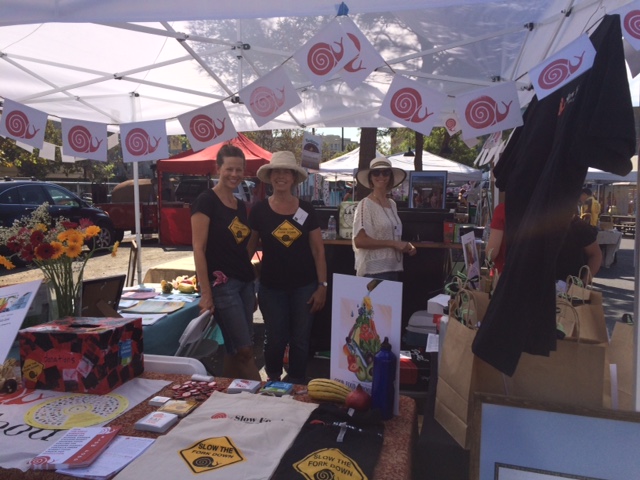 Over 40 partner organizations, our colleagues in the San Diego Slow Food movement, brought their variety of good, clean & fair food for all to our annual event. We owe our success to these partners, plus to our generous donors of food, supplies, raffle items, time and expertise, and to our awesome volunteers. Not to mention the rockstar staff at Quartyard. See you next year!
Over 40 partner organizations, our colleagues in the San Diego Slow Food movement, brought their variety of good, clean & fair food for all to our annual event. We owe our success to these partners, plus to our generous donors of food, supplies, raffle items, time and expertise, and to our awesome volunteers. Not to mention the rockstar staff at Quartyard. See you next year!
Like this year's artwork? You can buy an artist-signed print, of just the art, for $10. Email us at info@slowfoodurbansandiego.org.
Our amazing partners and sponsors:
1:1 Movement, Baby Cydesdale, Café Virtuoso, California Sea Grant, Scripps Institution of Oceanography, Catalina Offshore Products, Cat Chiu Phillips, Chef Rob Ruiz, City Farmers Nursery, City Farming Academy, Culinary Historians Of San Diego, Community Health Improvement Partners, Cook Pigs Ranch, Duck Foot Brewing, Edible San Diego, Epicurean San Diego, Ernest Miller, Girl Next Door Honey, Golden Coast Mead, Green Flash Brewing, Jeanne's Garden Program for Children, Kashi, Leah’s Pantry and EatFresh.org, Master Gardeners of San Diego, NOAA Fisheries, Nomad Donuts, Nopalito Hop Farm, Olivewood Gardens and Learning Center, One Bag World, Project New Village, RainThanks, Resource Conservation District of Greater San Diego County, Revolution Landscape, San Diego Weekly Markets, Slow Food San Diego State University, Slow Money SoCal, SoCal Fish, Stone Brewing Co., Surfrider Foundation San Diego, Suzie's Farm, The Humane League, Tuna Harbor Dockside Market, Via International, Viva Pops, Wild Willow Farm & Education Center, Women of Coffee Microfinance Fund, Specialty Produce, The Meat Men, Eclipse Chocolate, The Lodge at Torrey Pines, Next Door Wine + Craft Beer Bar, Dr. Bronner's, Blind Lady Alehouse, Leroy's Kitchen, Suzie's Farm, NINE-Ten, Curds and Wine, Epicurean San Diego, San Diego Food Systems Alliance.
Celebrate the Craft
By Rachel Helmer, SFUSD Board of Directors
Slow Food Urban San Diego is honored and grateful to have been a part of the 13th annual Celebrate the Craft held at The Lodge Torrey Pines. The October event showcases the region's best chefs, produce, wine, and beer. Guests came from all over California to gather together and celebrate with local culinary artisans, growers, brewers and vintners that were there to showcase their craftsmanship.
 A portion of the proceeds will be donated to Slow Food Urban San Diego, to support efforts in raising public awareness, improving access, and encouraging the enjoyment of foods that are local, seasonal, and sustainable. Thanks to everyone who came out and visited the Slow Food table and to Executive Chef Jeff Jackson and The Lodge for hosting such a beautiful event.
A portion of the proceeds will be donated to Slow Food Urban San Diego, to support efforts in raising public awareness, improving access, and encouraging the enjoyment of foods that are local, seasonal, and sustainable. Thanks to everyone who came out and visited the Slow Food table and to Executive Chef Jeff Jackson and The Lodge for hosting such a beautiful event.
Girl Next Door Honey Pollinates Hearts and Minds
By Sarah M. Shoffler, SFUSD Board of Directors
Bees are critical to pollinating plants and to growing thousands of fruits and vegetables that we eat. They are the only insect who make food that humans eat. But since the 1990s, beekeepers around the world have noticed bee colonies are disappearing. Added to that, droughts mean less access to their food supply. These things together spell trouble for these amazing five-eyed, honey-producing critters.
DID YOU KNOW?There are three types of bees: worker, drone and queen. All worker bees are females. Their wings beet 200 times per second or 12,000 beats per minute. The average worker bee produces about 1/12th of a tablespoon of honey in her lifetime. Bees communicate through pheromones and dances. Plus watch this.
But you don’t have to convince Hilary Kearney, Owner of Girl Next Door Honey, of the importance of bees. Her whole business is grounded in making bees accessible to people on every level.
“First and foremost I am educating people about bees and I find that they are often less afraid of them once they have a better understanding of what they do. I like to think of it as 'pollinating hearts and minds,” says Hilary. She does this by: teaching classes on backyard hives, managing home hives, relocating hives, teaching children about bees and giving Beehive Tours to the public. These efforts, she feels, will broaden bee knowledge among the public and lessen people’s fear of bees, which are critical to “engaging people with bees and on a larger scale their local food and ecosystem.”
queen-cup-337695_1280
Hilary cares about her bees. Under normal conditions, bees will produce excess honey, enough to supply us humans with the sweet stuff and still feed themselves. But during a drought, there are fewer flowers, which means less nectar, which the bees need in order to make honey. So they may not be able produce enough for themselves and may have to work harder and travel further just to find the nectar. To support her bees, who rely on honey as their only food, Hilary doesn’t harvest honey during a drought. So when people buy honey from her, they can be assured that the bees it was taken from have enough food and are not starving.
In addition, the drought has weakened the wild colonies in the area. They are producing smaller and weaker swarms (when a queen leaves a colony with worker bees to form a new colony). “When I do a bee rescue it takes more effort and resources to keep those bees alive and healthy” she says. Wondering what you can do to support bees?
HOW TO HELP BEES:
Avoid neonicotinoids in pesticides. These are thought to weaken bees’ immune system and make bees vulnerable to disease, parasites, extreme weather, viruses, poor nutrition, and other stressors.
Plant organic bee-friendly flowers, like California poppy, citrus, sage, sunflowers and others listed here.
Make a bee drinking fountain: fill a baking dish or pet water bowl with pebbles or marbles and water. The bees will stand on the marbles while they drink, without drowning.
To learn more about bees, honey, beekeeping and how to help bees, you can check out Girl Next Door’s partnership with Suzie's Farm and their new monthly Beehive Tours. You’ll be able to suit up and go into a beehive with Hilary. Or, come check her and our other bee-positive partners out at the Good Food Community Fair, Sunday, October 11th.
Three Brewers and a Hop Farmer Walk into a Bar: at the Good Food Community Fair
By Sarah Shoffler, SFUSD Board of Directors
Our “Craft Beer and Local Hops: a Community Dialogue” panel discussion at this year’s Good Food Community Fair will feature three San Diego breweries and a local hop farmer. We selected these local producers because of their novel production practices, commitment to sustainability and community, along with their flavorful products.
The youngest brewery on our panel at just four months old, Duck Foot Brewing Company has a unique approach to serving delicious beer to all San Diegans. “With so many great breweries in the county it can be difficult to differentiate yourself, but we have a solid lineup of different styles of beers with a focus on balance,” says Chief Fermentation Officer, Brett Goldstock of Duck Foot Brewing Company. “Plus, we’ve uniquely positioned ourselves to serve a whole sector of the community not served before by brewing gluten-reduced beer. And our gluten-reducing process doesn’t affect the natural flavor, aroma or body of any of our brews.”
Bold and hop-centric Stone Brewing Co. is a San Diego king, both in terms of brewing and in terms of supporting the Good, Clean & Fair Food movement. Longtime supporters of local environmental non-profits, like Surfrider San Diego, sustainability is integral to their business practices: Stone Brewing World Bistro & Gardens is the largest restaurant purchaser of local, small-farm, organic produce in San Diego County. Their Bistro’s Meatless Monday menu prevents 110,448 lbs. of CO2 from being released annually and they source their vegetables from their organic Stone Farms. Stone also provides their spent grain to local dairy animals for feed. Stone sees operating their own farm as a hands-on demonstration of their commitment to sustainable food production.
Among the pioneers of the local IPA movement, Green Flash continues to experiment to find the next great beer. “Our Genius Lab allows any employee with an idea for an experimental beer to convince a brewer to brew it on our 5 bbl. pilot system,” says Erik Jensen, Head Brewer of Green Flash Brewing Company. “We serve these beers in our tasting room and many are the basis for future production beers. Cellar 3 is a separate facility dedicated to wood-aged sour beer and spirit-aged beer.”
Nopalito Farm & Hopyard is a two-and-a-half acre certified organic hopyard in north San Diego County providing high-quality local hops to local brewers. “While we do dry some of our hops, we prefer to supply brewers with fresh hops, which are typically hard to come by this far south. Plus, we grow damn tasty hops,” says Jordan Brownwood, Farmer and Owner of Nopalito Farm & Hopyard. “Water is the number one issue for farms all over the West Coast, so the drought has heavily affected us,” which is, in part, why they use drip irrigation, heavy mulching and other techniques allowing them to minimize the farm’s water use.
And while our local breweries have not yet faced big water restrictions to their operations, the drought is on all their minds. “The dirty little secret of the brewing industry is the brewing process consumes a large amount of water to make a gallon of beer,” says Brett. Most breweries use 3-7 barrels of water to produce one barrel of beer, depending on their production practices. Duck Foot, Green Flash and Stone evaluate water use at each step in their beer-making processes. And Stone is trendsetting in its water practices having implemented an on-site water reclamation system and water conservation practices years before the drought’s regulations came into effect.
Our panel, moderated by JuliAnna Arnett, a local food systems expert, will explore the ways our local beer and hop industries support good, clean and fair food (and beer!) for all, the impact of the drought, and how they can implement water-wise production. Plus, beer. Really good beer.
Join the discussion and enjoy a quaff with these good folks at 2pm, Oct. 11th at the Quartyard:
How Recycling Food Waste is Water Wise: An Interview with San Diego Food System Alliance's Elly Brown
By Kathryn Rogers, SFUSD Board of Directors
With no end in sight to the California drought, local organizations are seeking sustainable solutions to address all aspects of water use. The San Diego Food System Alliance, coordinated by Elly Brown, is collaborating with other local non-profits to process and minimize food waste - a surprising issue of importance in the water conservation dialogue.
According to a recent Natural Resources Defense Council report, getting food from the farm to our forks eats up 10 percent of the total U.S. energy budget, uses 50 percent of U.S. land and swallows 80 percent of all freshwater consumed in the United States. Yet, 40 percent of food in the United States today goes uneaten. This means that Americans are throwing out the equivalent of $165 billion each year and wasting a significant amount of water at the same time. What’s more, researchers at the NIH have found that food waste accounts for over 25% of total freshwater consumption. Not to mention the approximately 300 million barrels of oil per year for transporting this wasted food along with the methane and CO2 emissions from decomposing food in our landfills.
The good news is that the state of California recently passed legislation to begin addressing some of these issues. Governor Jerry Brown signed AB1826 in October 2014, which requires local jurisdictions to have an organic waste recycling program in place by January 1, 2016, and businesses to recycle their organic waste by April 1, 2016.
A forward-thinking policy, no doubt, but how will it be implemented locally?
The Food System Alliance is working in San Diego County to create polices and solutions to address huge gaps in terms of infrastructure for handling food waste. Food System Alliance researchers recently estimated that San Diegans produce 500,000 tons of food waste, but local composting facilities can only process an estimated 10,000 tons of this waste. We still have a long way to go.
Public awareness about how much food waste we are producing and how to store and recycle this waste properly is a critical piece to the story as well. “The National Resource Defense Council and Ad Council are doing a national awareness campaign around food waste launching in early 2016, and we plan to dovetail and build upon that locally,” says Brown.
Ground-level efforts are also helping to educate community members about waste issues and engage them in opportunities to create change. The Food System Alliance has collaborated with the Wild Willow Farm, Hidden Resources, and Sweetwater School District to pilot a Food Recovery Program. The Food System Alliance will also convene groups and individuals for a half-day summit on food waste on October 6: the Food Waste Solution Summit.
“Water conservation should not only be happening in our homes but also in our food system as well by creating less waste and encouraging efficiencies,” says Brown.
To learn more about local efforts to conserve water, join the Food System Alliance and other community partners at Slow Food Urban San Diego’s Annual Good Food Community Fair on October 11.







